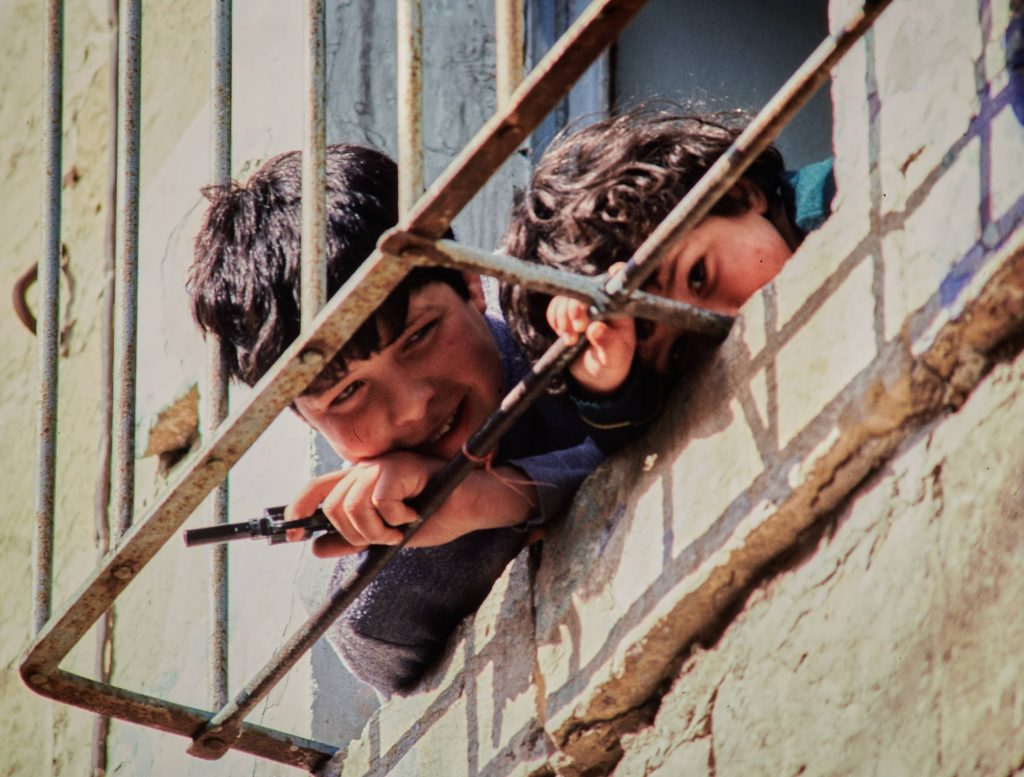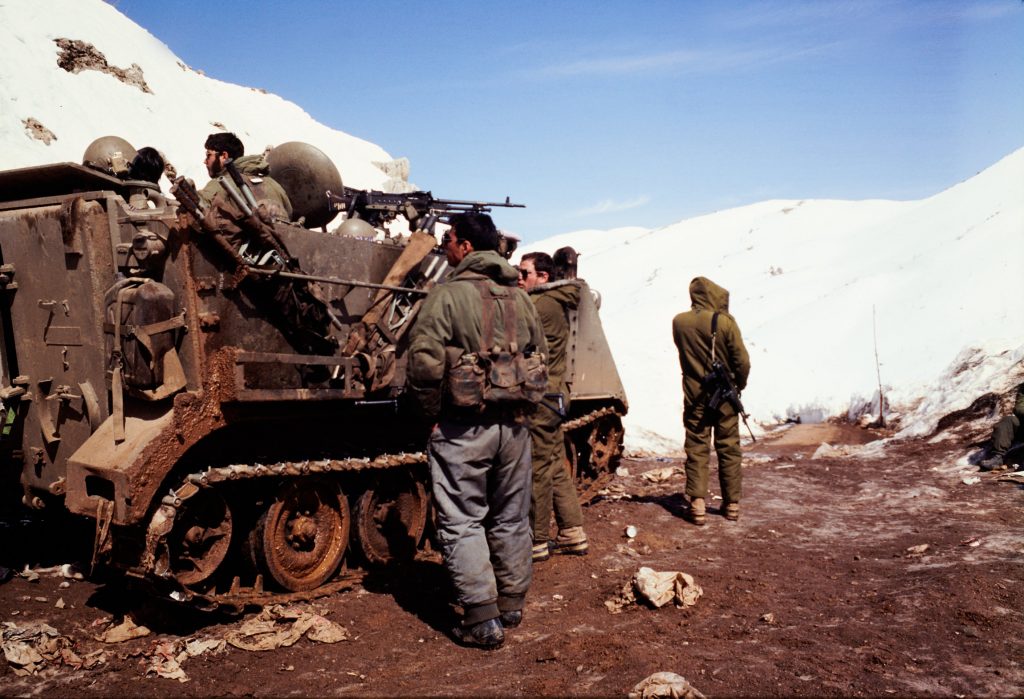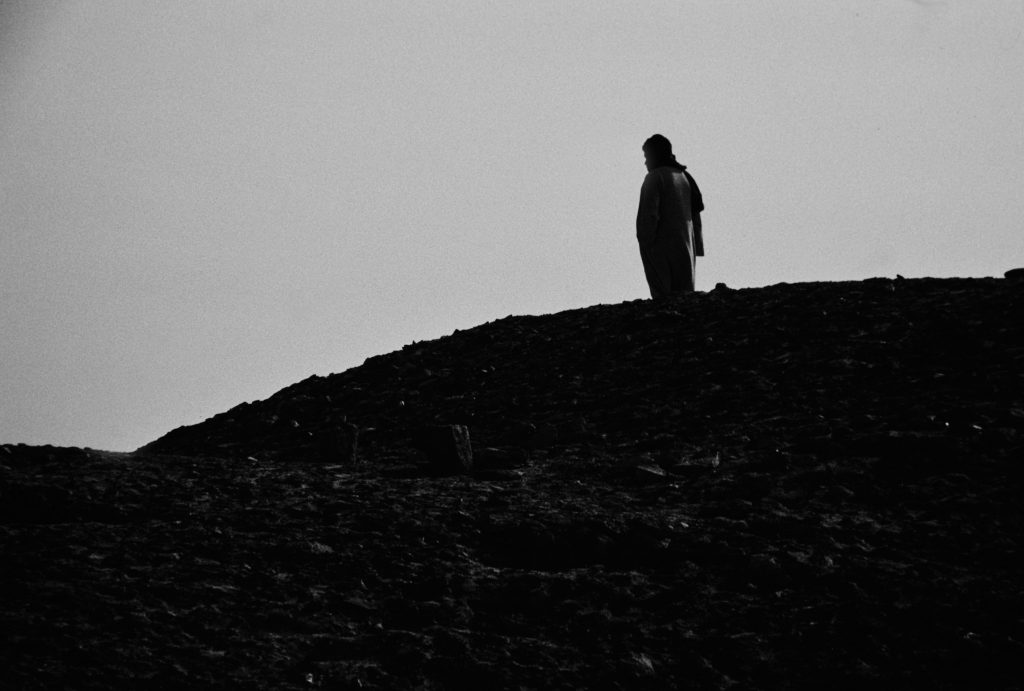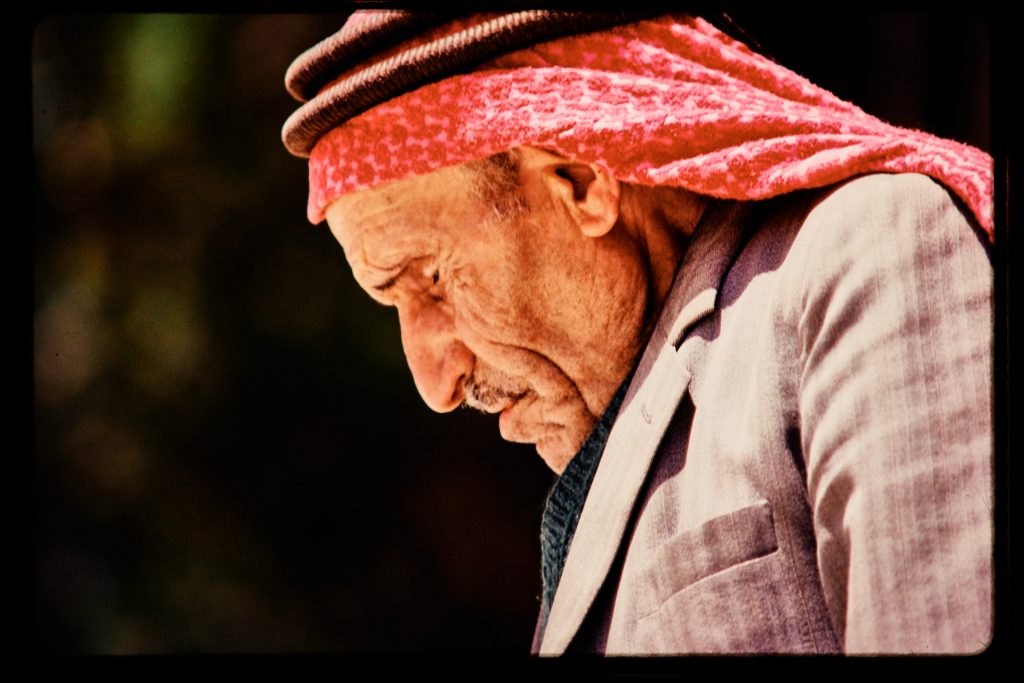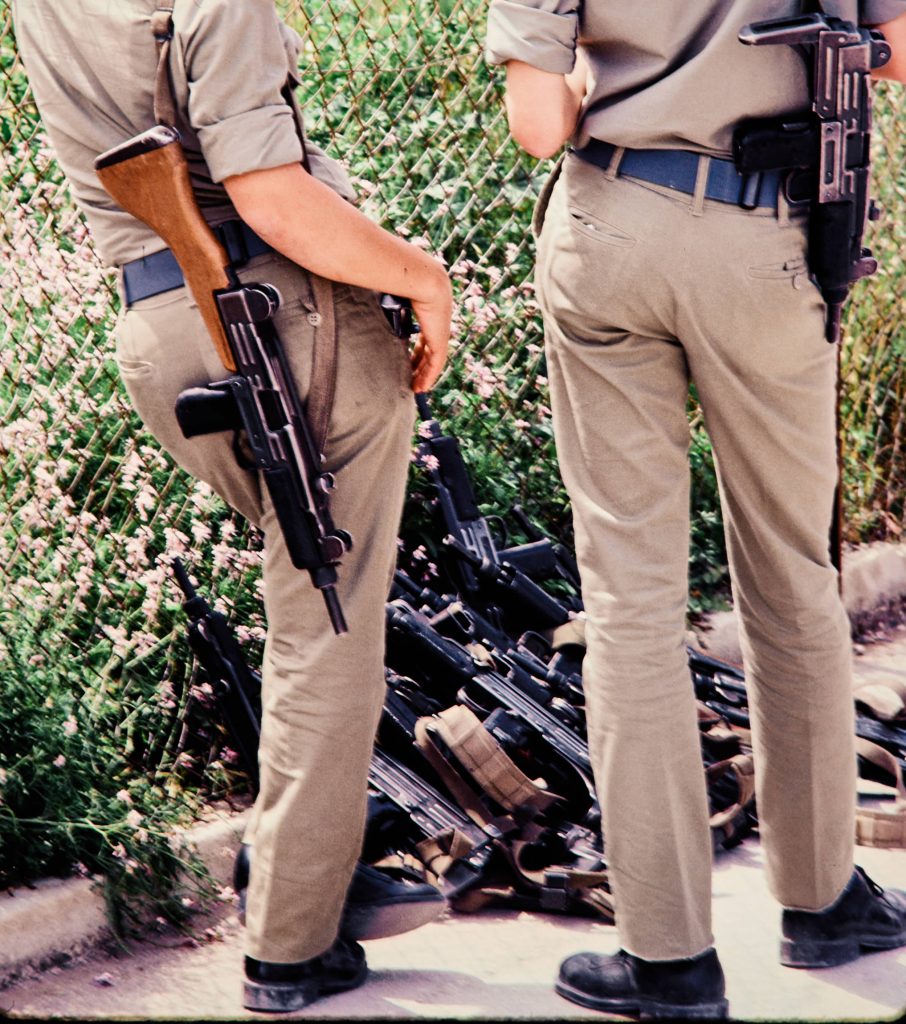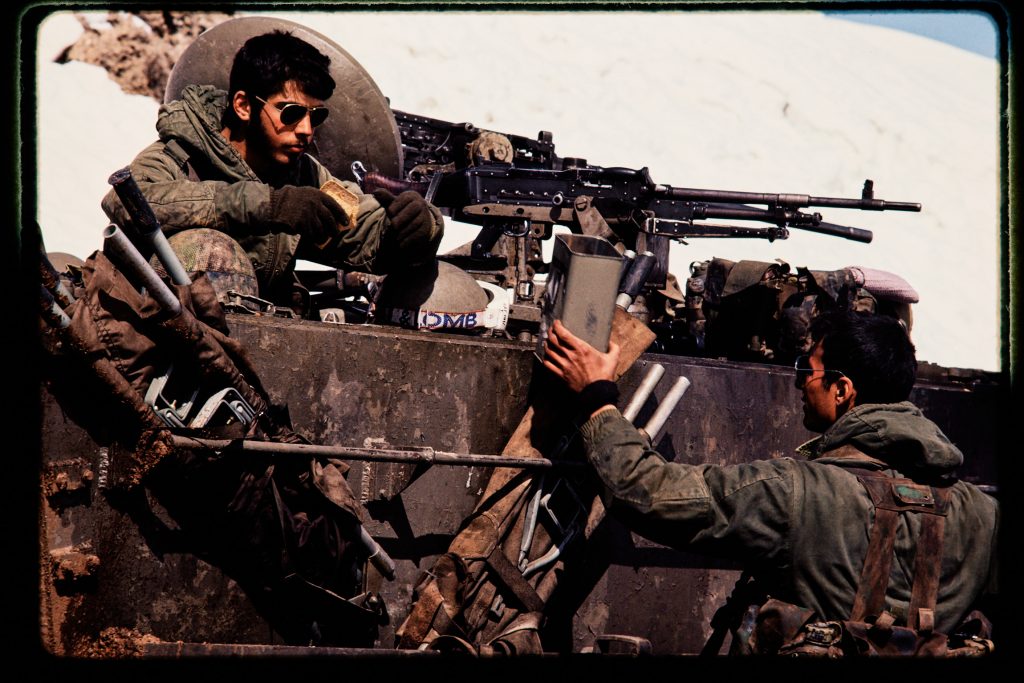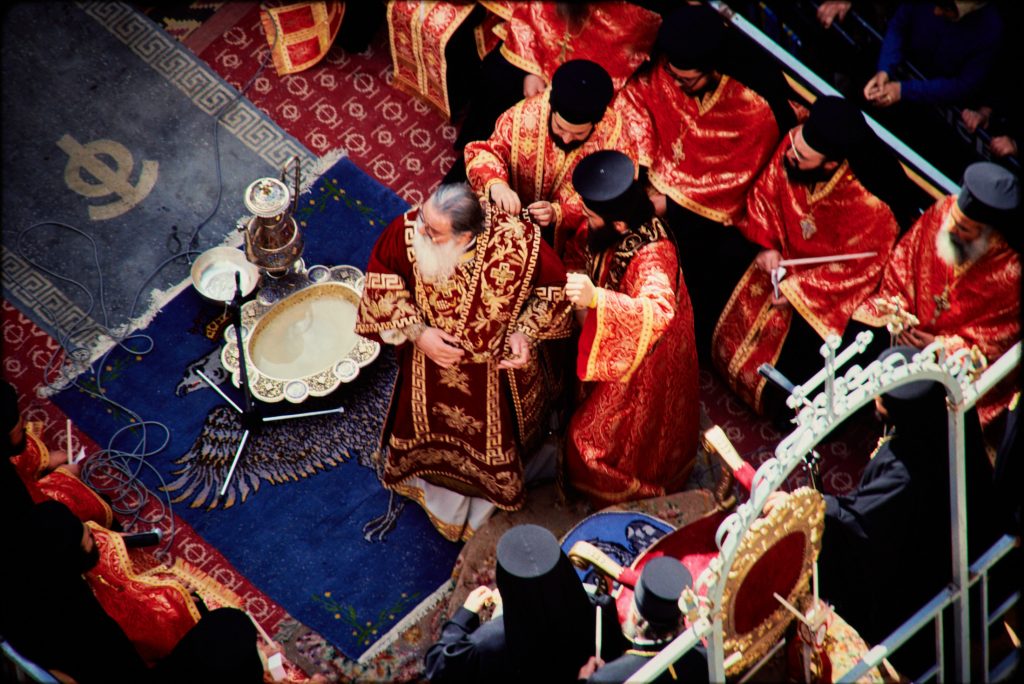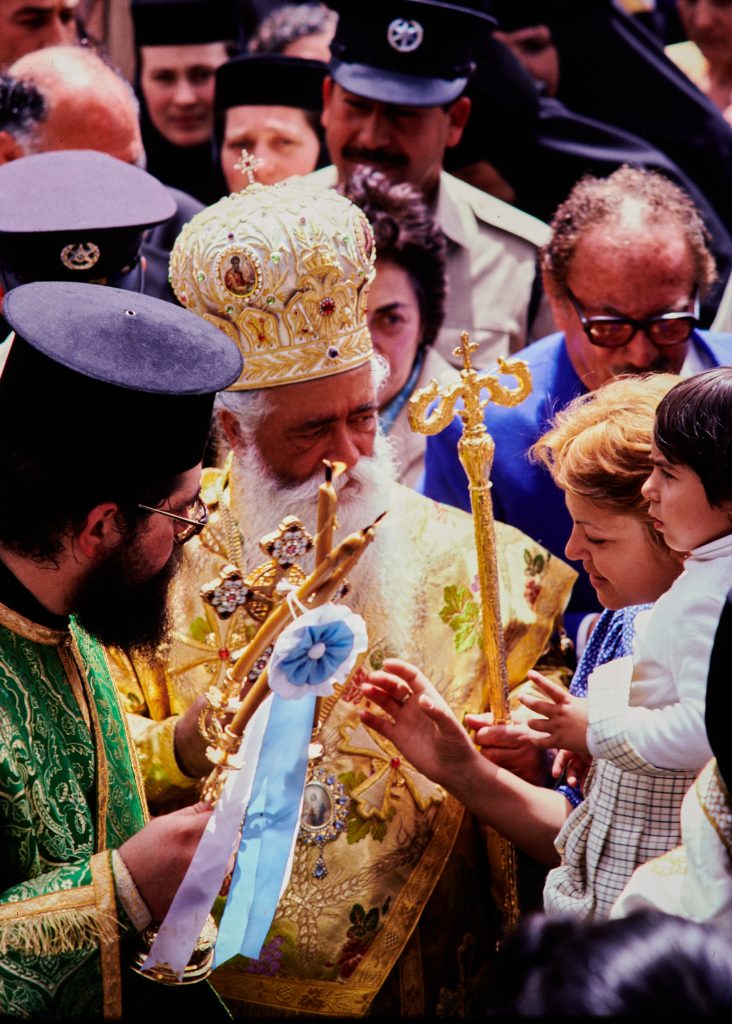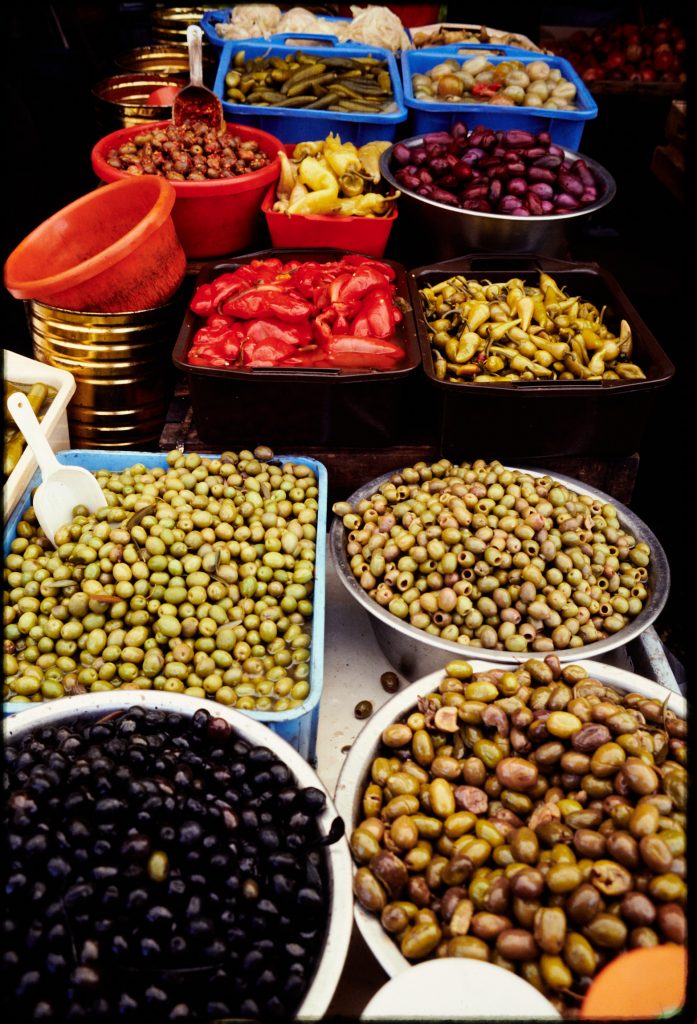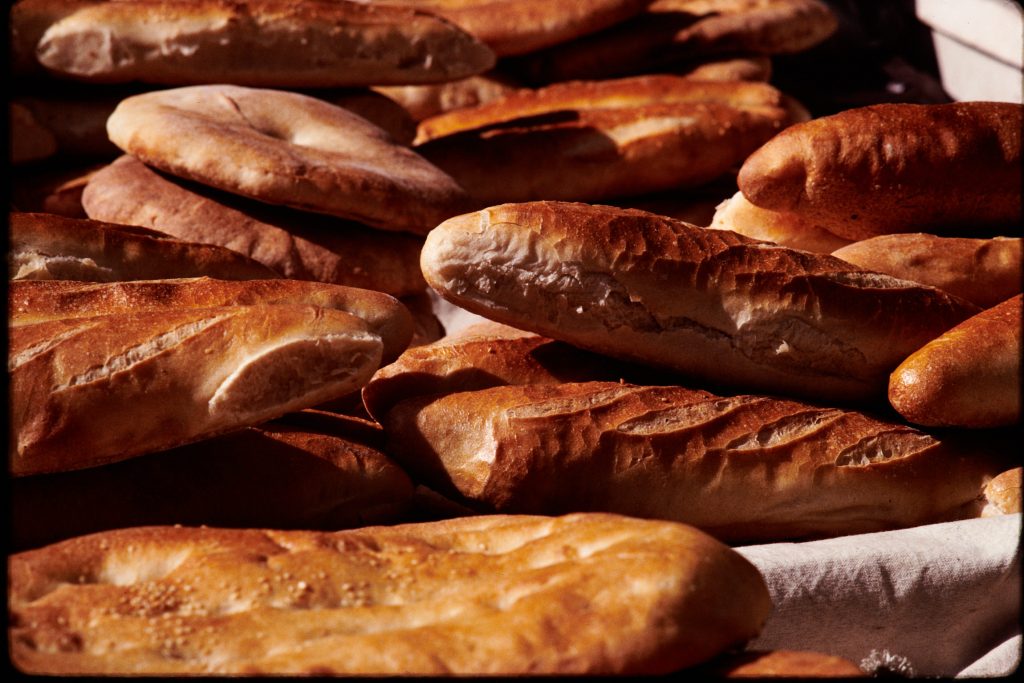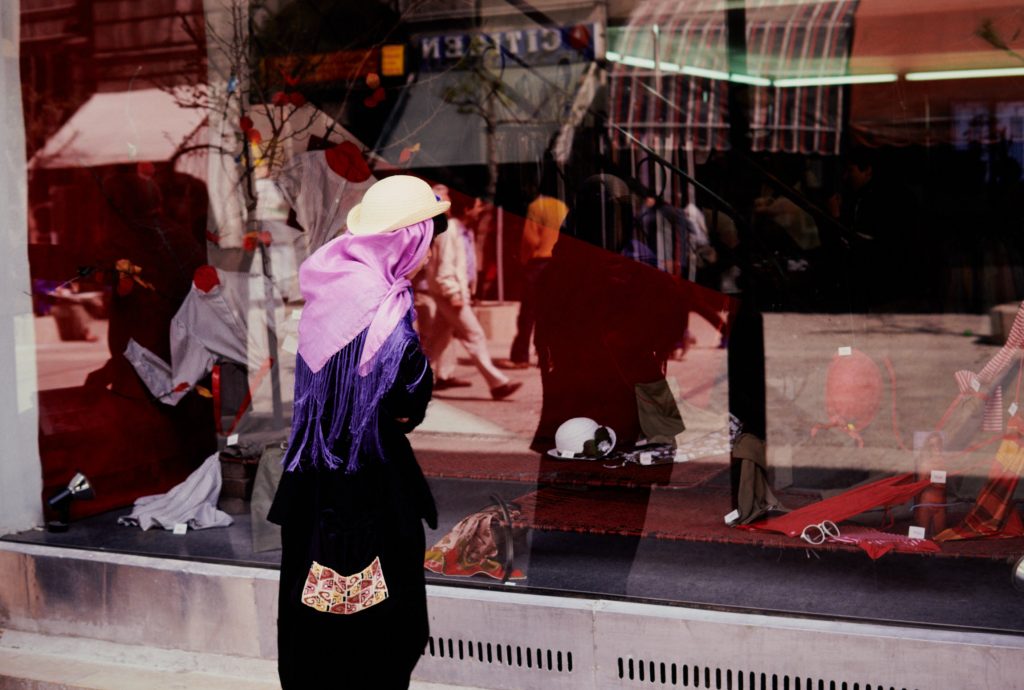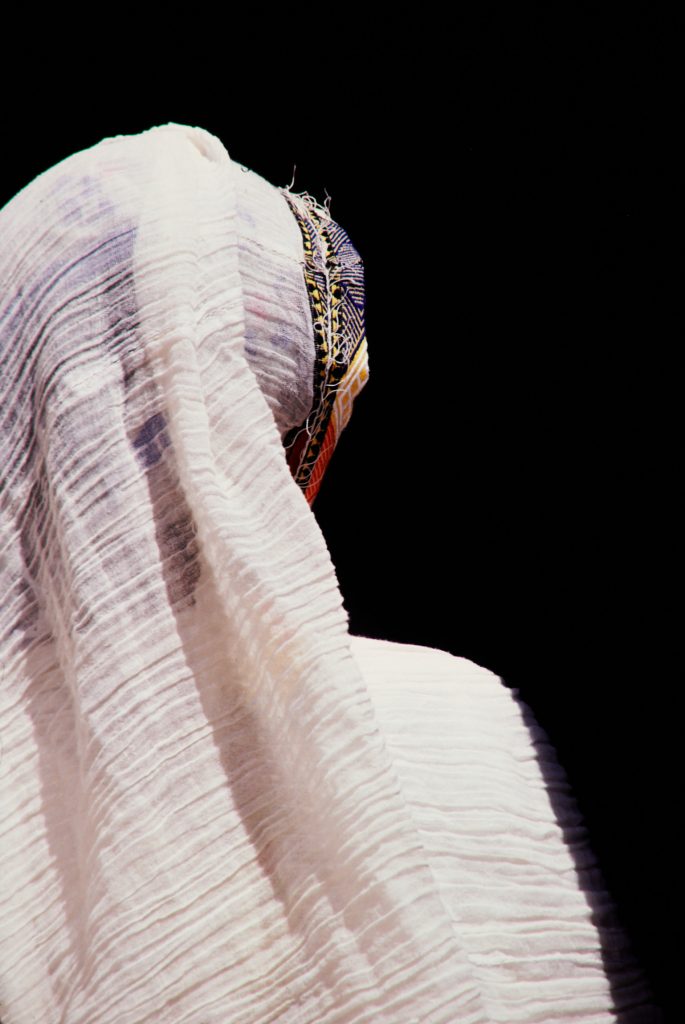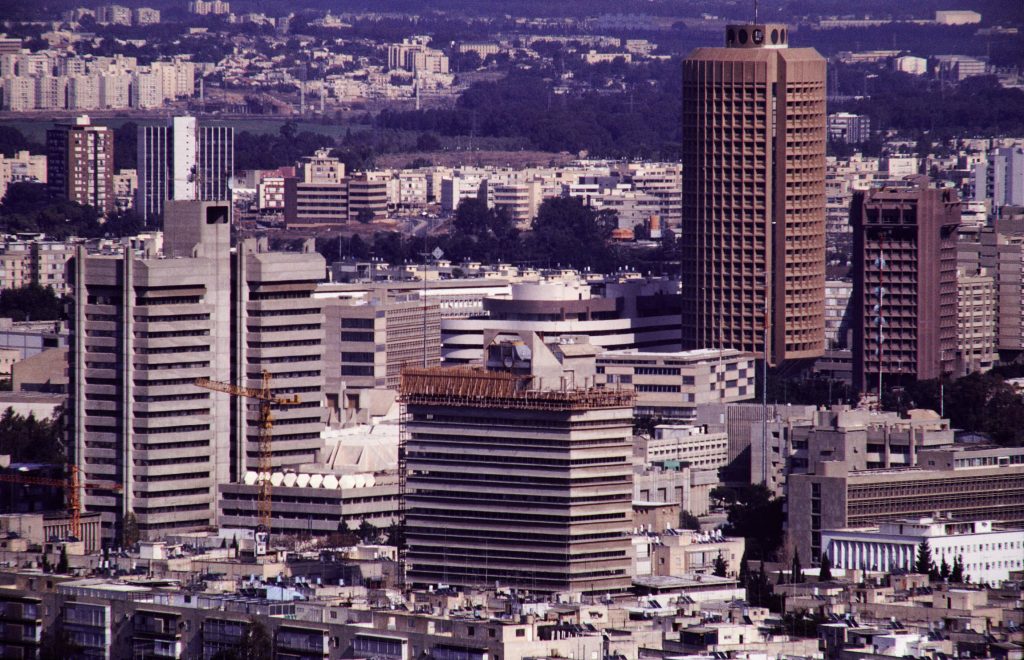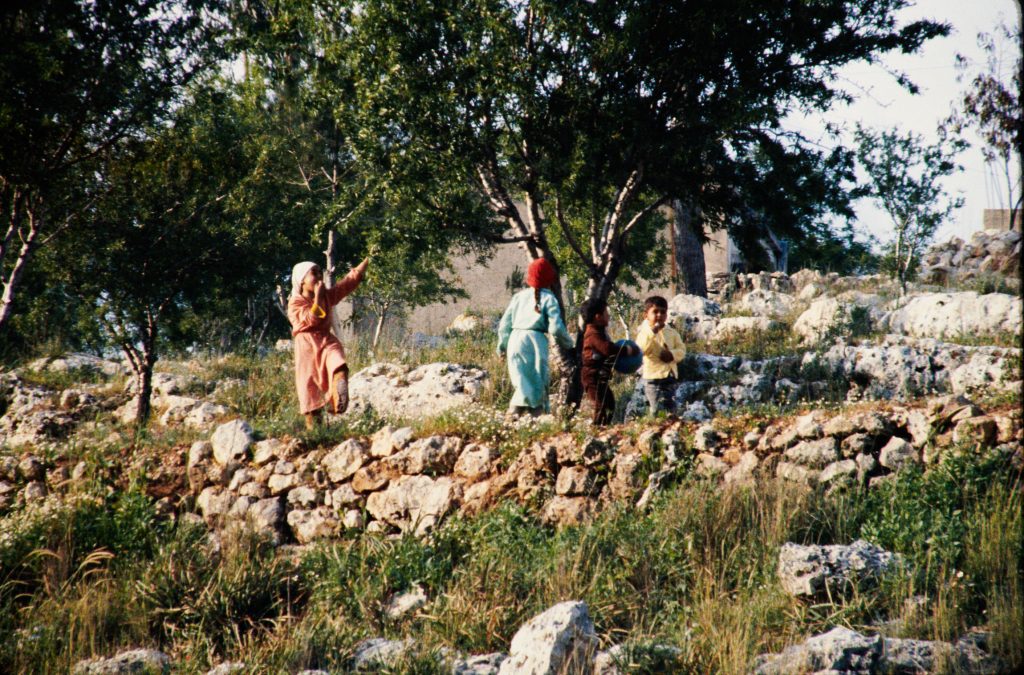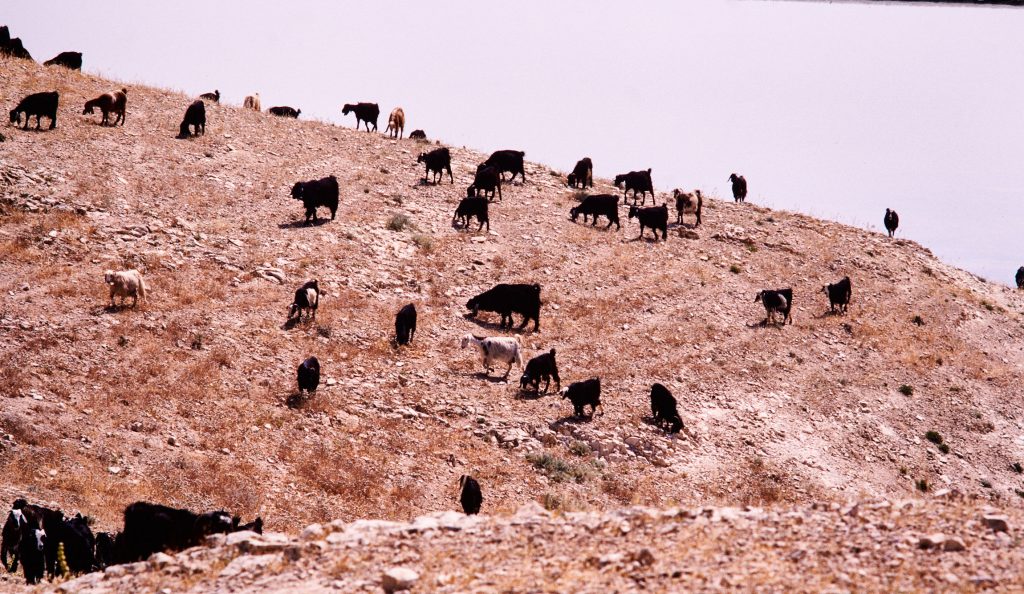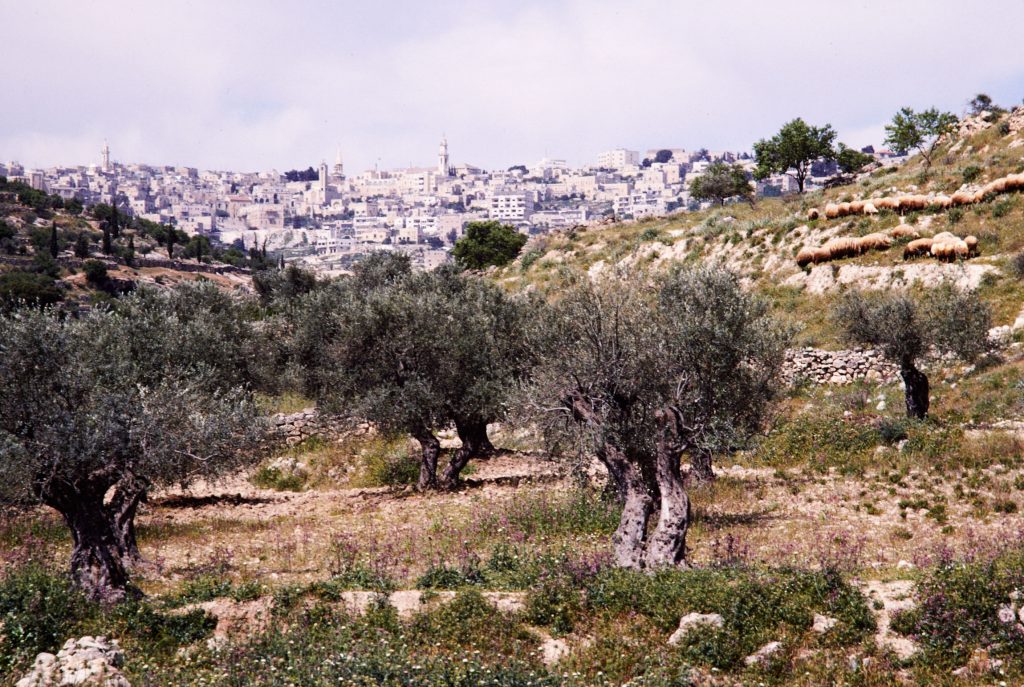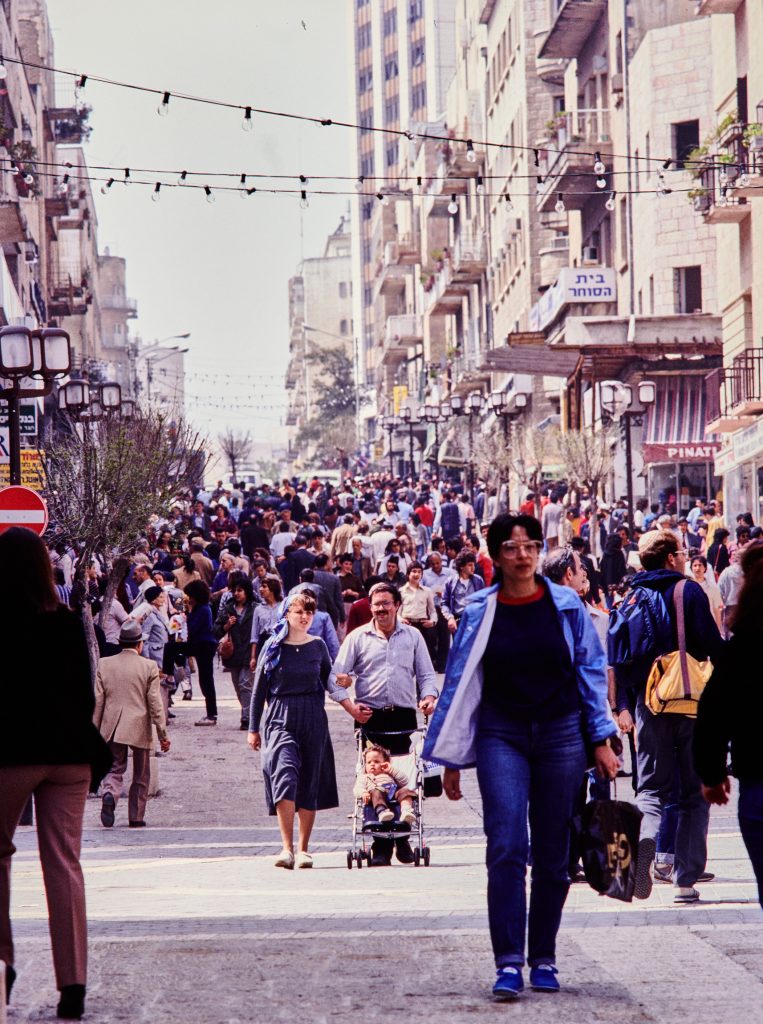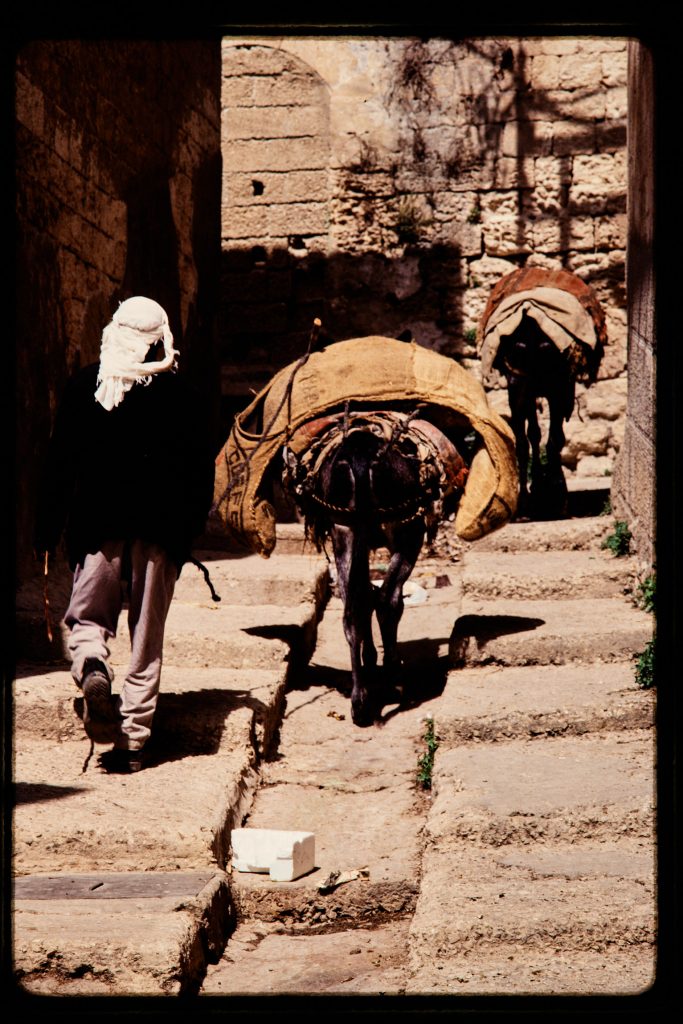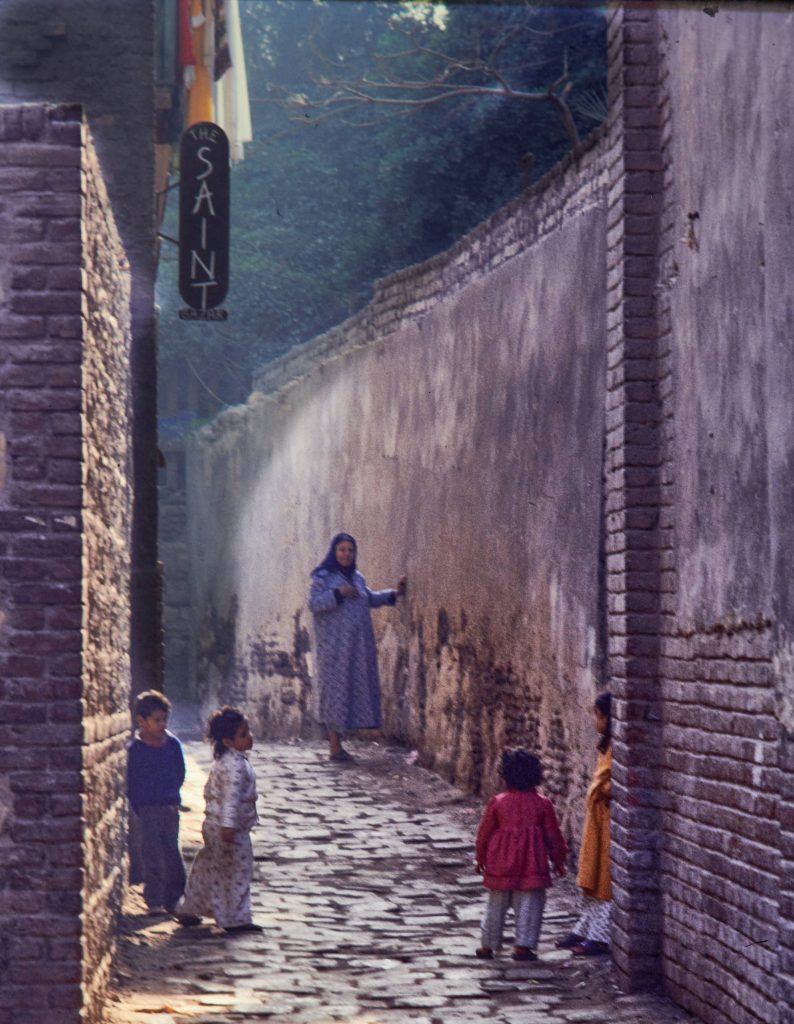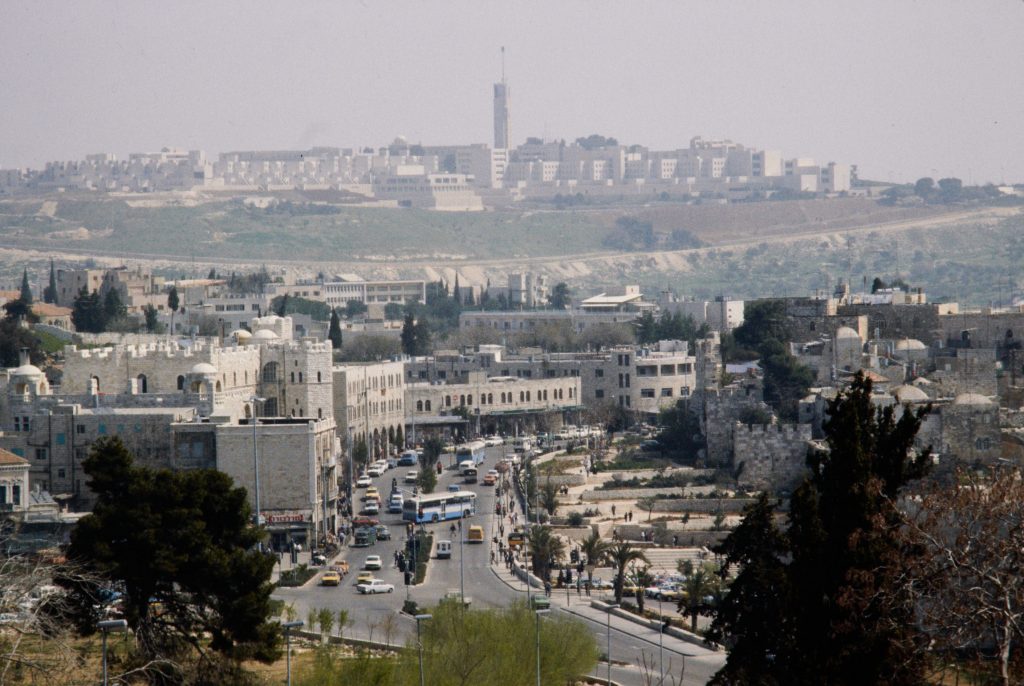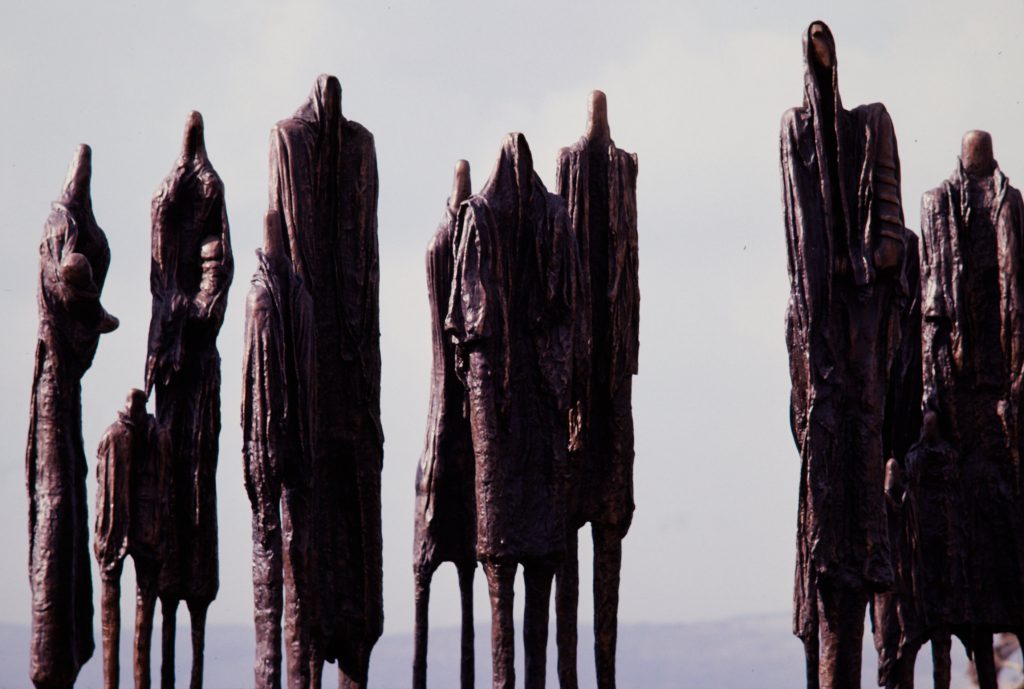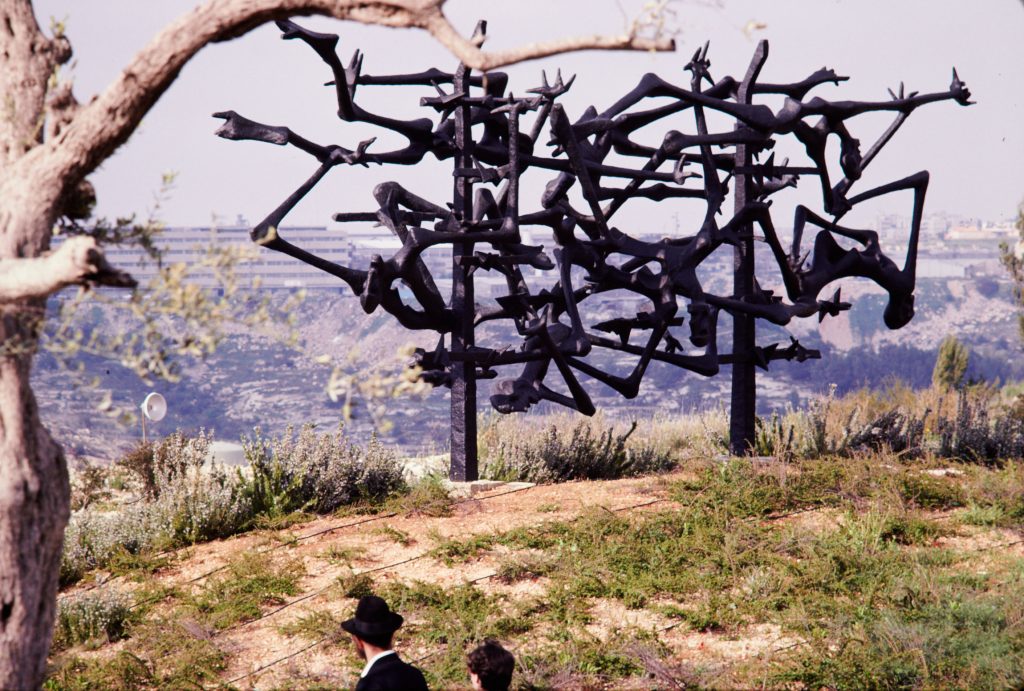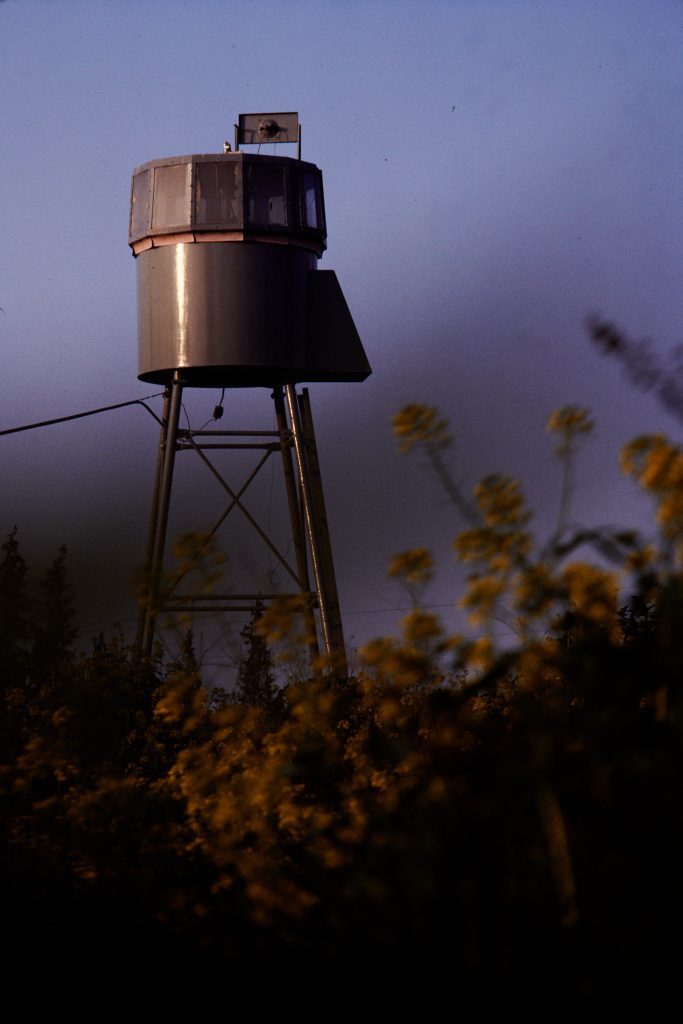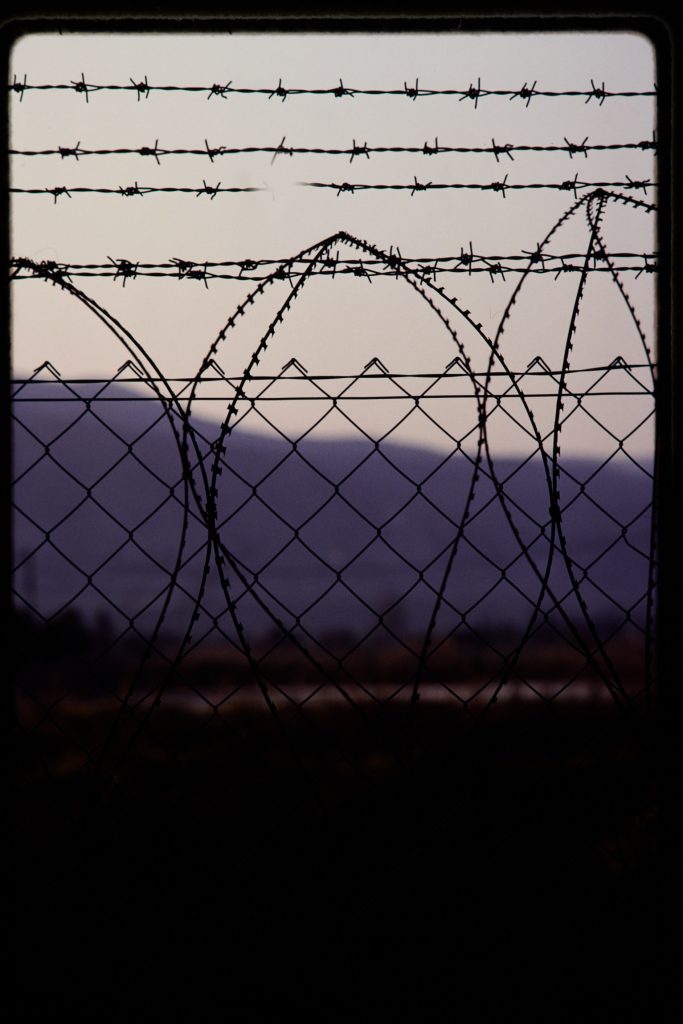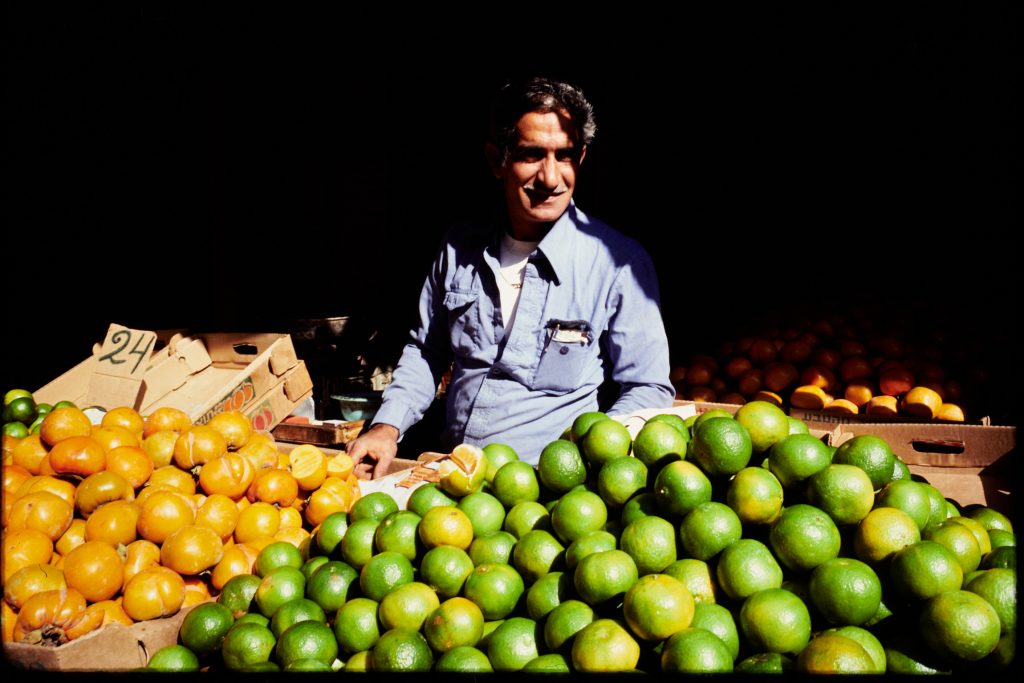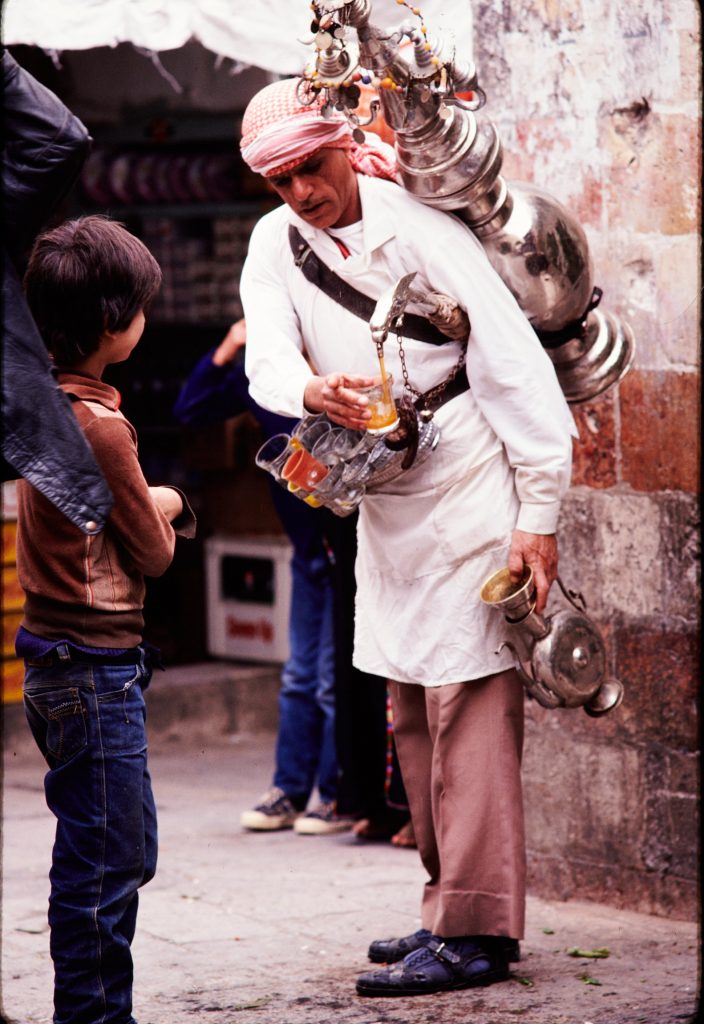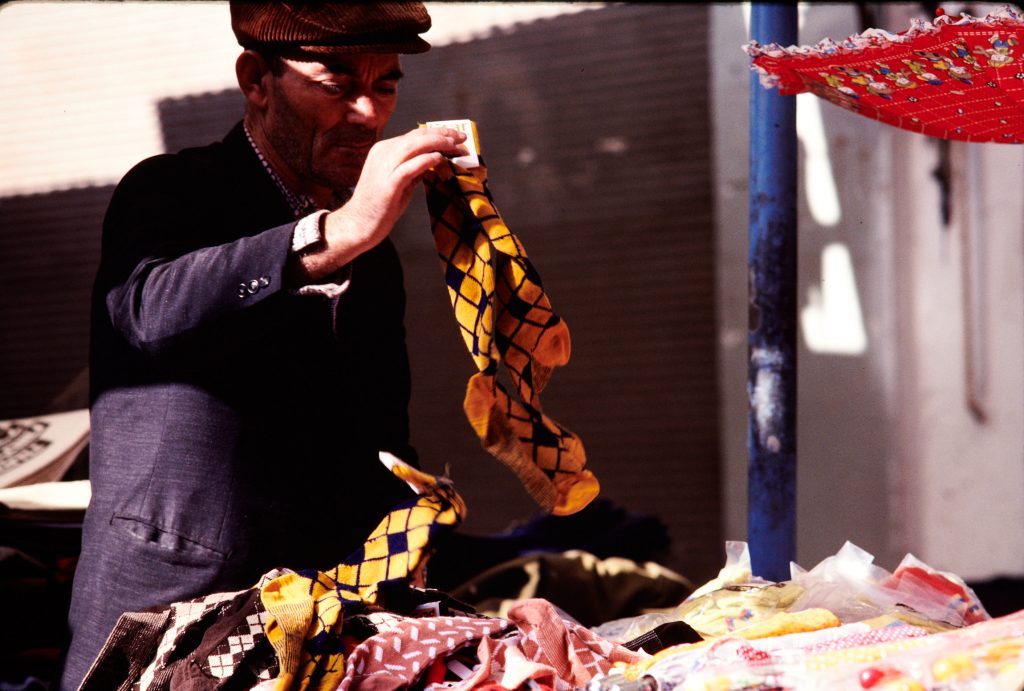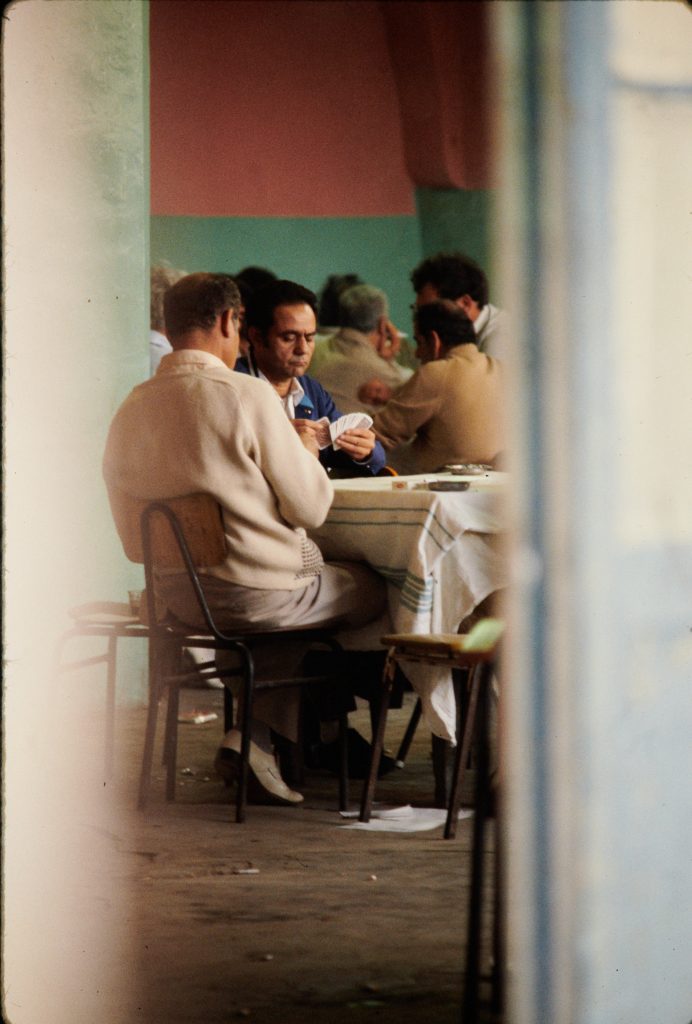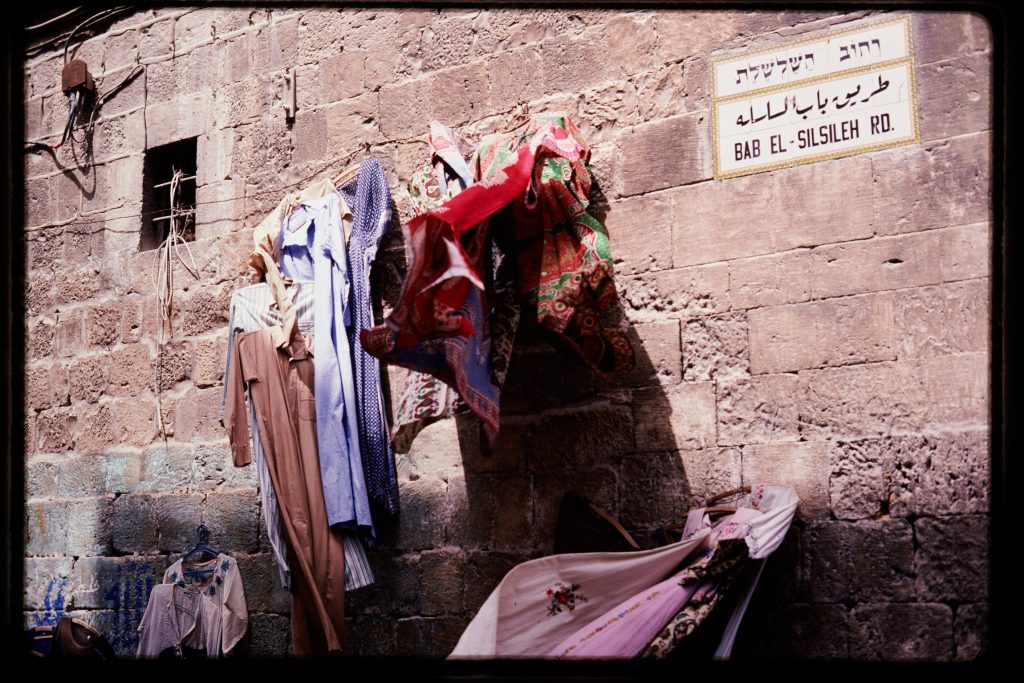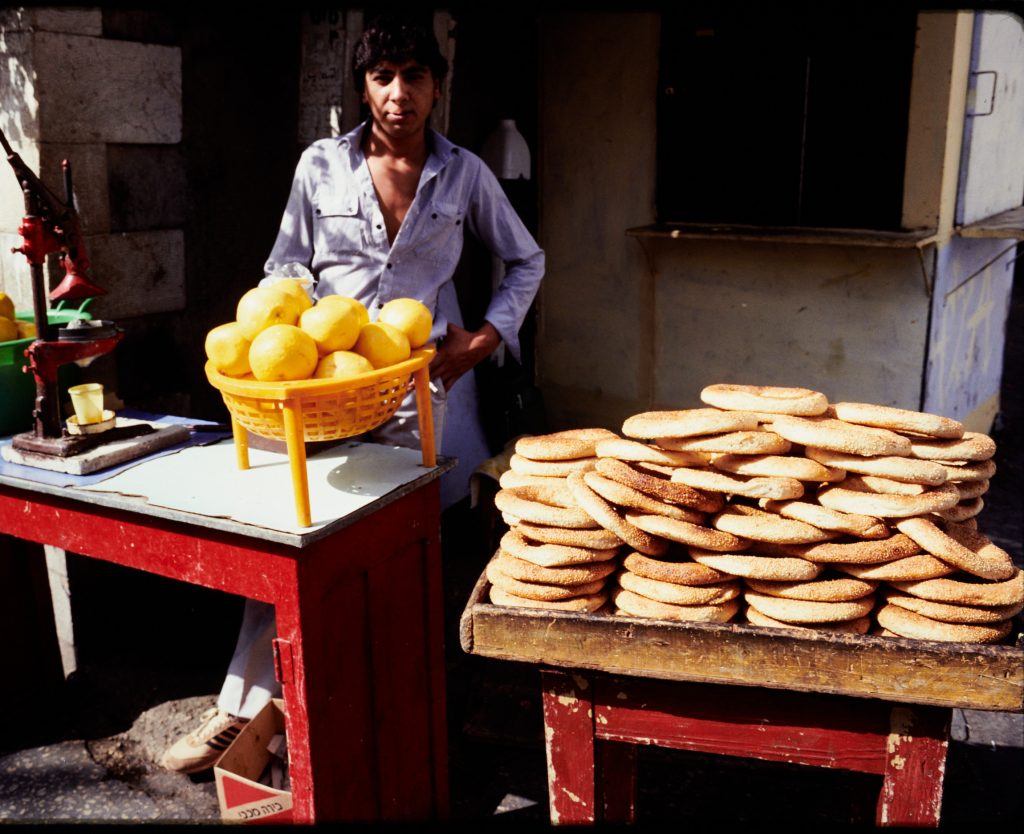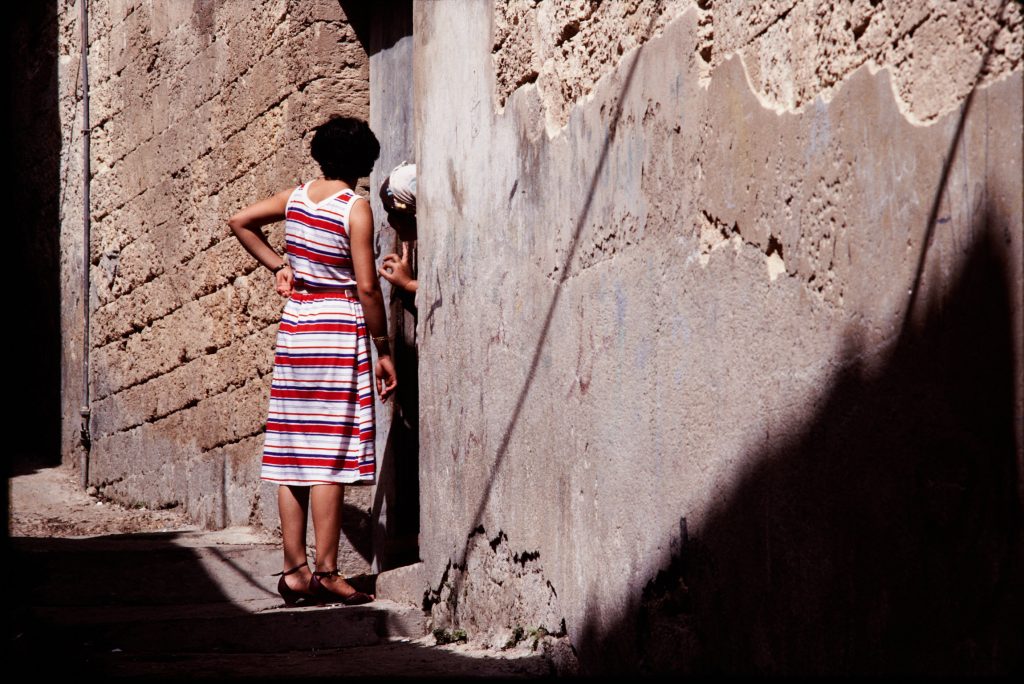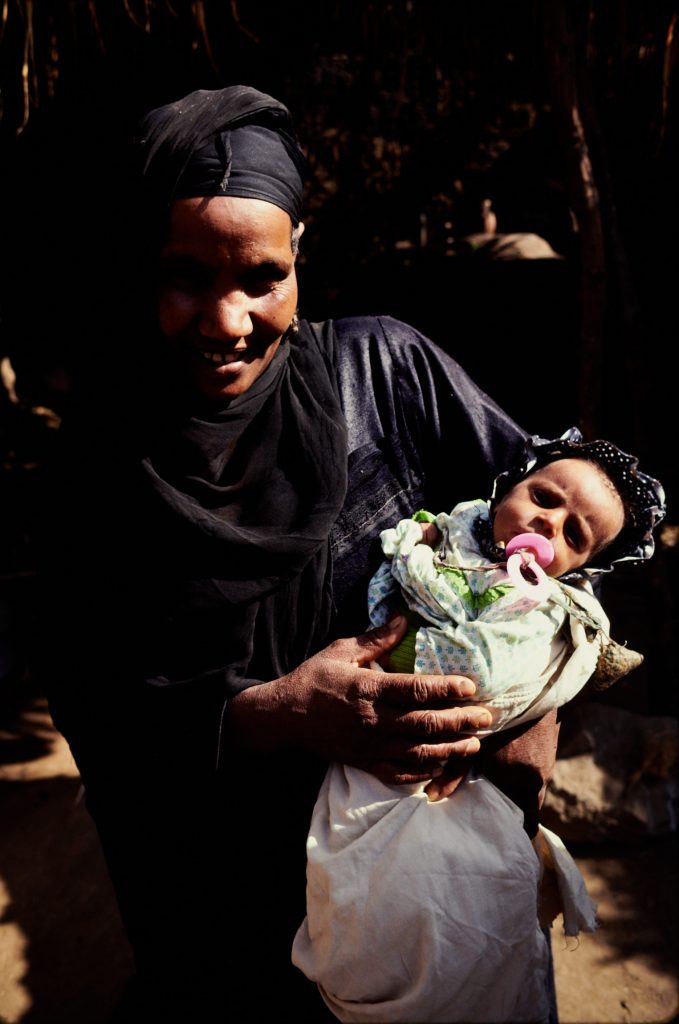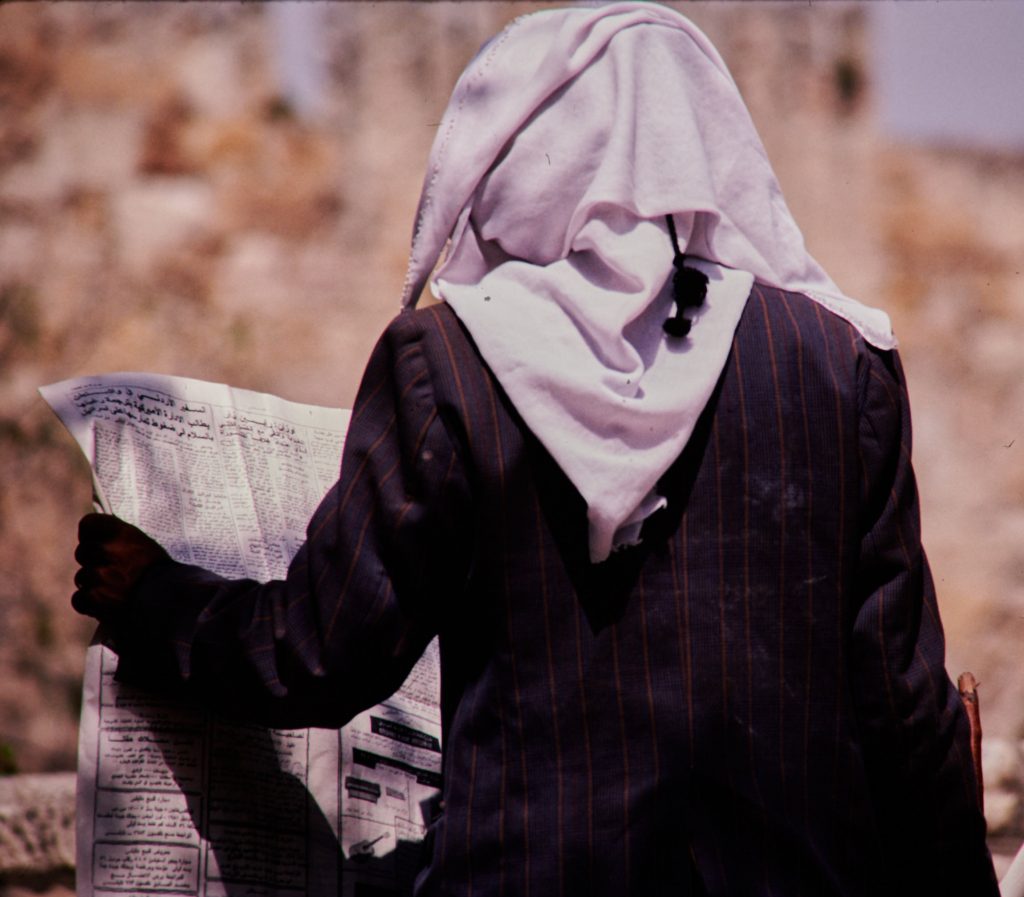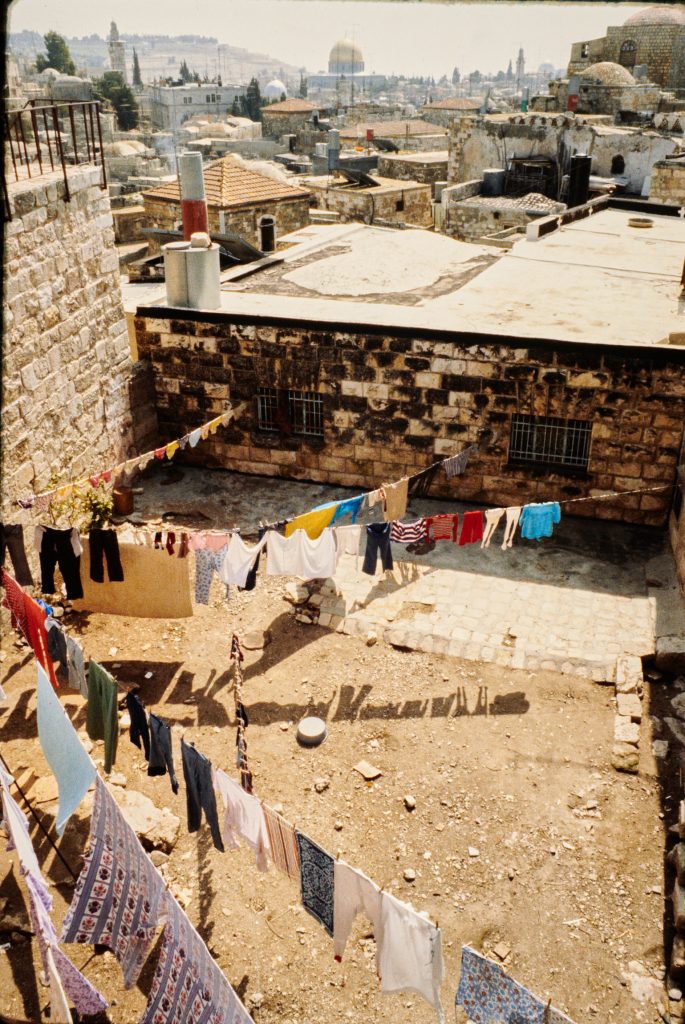One evening in 1983 at St. George’s College, Jerusalem, a consular official from the Australian embassy spoke to our class about the political situation between the Israelis and Palestinians. His most telling remark for me was his observation that the longer one spent in the Middle East, the more difficult and complicated the question became, let alone finding a solution for the two people’s claim over the one land.
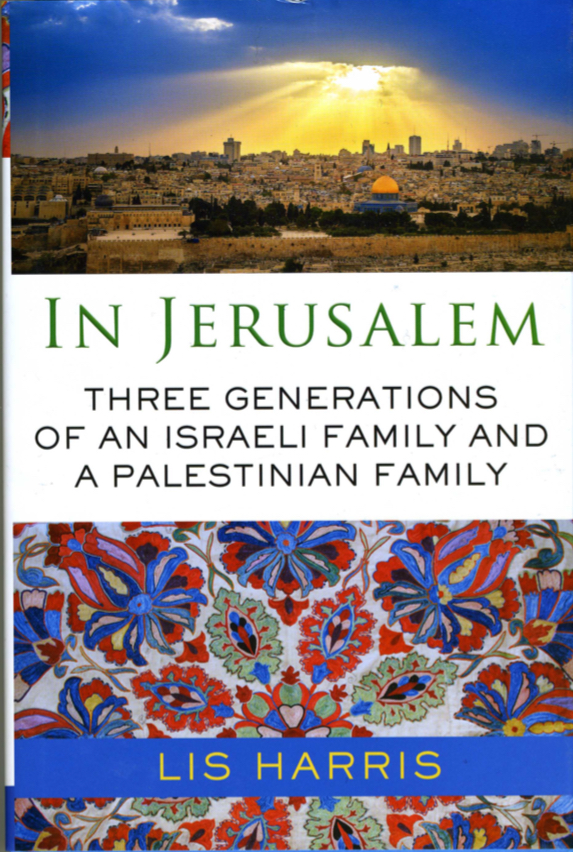

The photos and comments in this piece represent the points of view I heard when in the Middle East and as I spent most of my time among Israelis, it reflects that perspective more. I’m not bringing the academic study or background required to present a comprehensive and balanced view of the conflict. While interested, I have only cursorily followed the developments in the Middle East from a distance and have not had a chance to return to the Holy Land since 1983. Friends who have spent time over the years living and working in the Holy Land, returning often over the years, recommended a book to me that impressed them with its insight and balance. I offer this for your consideration, especially to learn what the conflict means for individuals and families, for when one lives for any time in the Middle East, it is the people, not all the theory and statistics that most presses on one’s heart.
No one, including oneself likes to think badly of oneself -in fact we have many psychological strategies to avoid facing our own failures. However, if we want to be honest about the conflict in the Middle East and not be the high-minded moral judges we often are, then let us recognize that behind the instability of the Middle East is a brutal European history.
Pogroms against the Jews we’ll admit, because it’s acceptable to blame the Germans but we fail to face up to our own colonial heritage that ravished every corner of this planet.
General Allenby walked through the Damascus Gate in 1917, British forces having defeated the Ottoman Empire. The British Army was the greatest in the world when you think about it. That’s quite something. Top of the heap, our forbears over all the other peoples and nations of the world. And what is the success of the British Army and Navy, along with excellent command of the business of war? They were ruthless, more ruthless, better at being ruthless than anyone else. They were the best fighters, bloodiest most violent fighters. That’s why they won.
It’s not so easy for us to accept that our forebears, the honoured state people and military leaders we hold in high esteem, winners of battles, designers of commercial enterprises, collectors of art and artifacts were successful because they were more ruthless than their enemies or their competitors, and maybe luckier.
We are proud of our grand palaces, magnificent museums, stunning collections of art and artifacts from around the world, rich academic libraries, cheap cottons and fine au couture, spices and fruits, the best of technology, the best of transportation, the best of infrastructure, the most sophisticated medical knowledge and engineering. It is our achievement, our proud heritage, a wealth we have fostered and indulged. But we don’t want to ask why it is we who are beholden of all this wealth and not another.
What we don’t want to think about is that the game we won was war or some kind of violent coercion. And let us not be deceived, global trade is violent coercion.
The military and the commercial interests went hand in hand. For the money to flow into European coffers and the citizens to have all they wanted, local populations in the colonies were nothing more than pack animals that when used up died on the side of the trail. Any who tried to escape their enforced labour were hacked to death as a matter of course. We have only to read Joseph Conrad and Roger Casement.
The East India Company, British commerce at its most productive, had a larger standing army than the British nation that acted with equally savage impunity as the British services. And it was no less successful than the British army, that is, it was effectively ruthless against the indigenous people of the nations it was ravishing for British commercial interests, so British people could buy cheap cotton clothes.
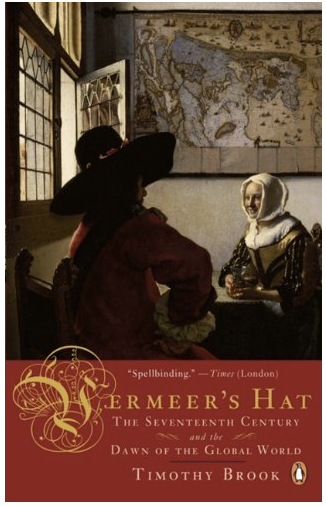

Timothy Brook in his Vermeer study points out how the popular beaver hat, all the rage in Europe, that led to the disappearance of the beaver in Europe that was the reason, the extraordinary profit to be made at least from beaver, was the reason France and England fought over our country, and that in the course of supplying such a fashionable hat for the British, many indigenous people died, traditional societies routed, expendable in the course of enterprise, of no concern, the deaths even unknown to these Dutch citizens pictured here. They wouldn’t want to know is the truth and the state wouldn’t want them to know.
All the while, the great narrative of empire celebrated colonialism as the liberation of foreign peoples from their dark ways to benefit from the exemplary civilization of, for example, Great Britain. Saving the savages was a wonderful message to assure the British population, while in the colonies the commercial interests committed horrific acts of genocide in the name of the King and Queen.
We shouldn’t think this is all in the past. The products filling our stores, a result of the global marketplace, are no less the benefits of a ruthless championing of the game on our behalf. Twenty percent of the world’s population, us, use for our comfort and pleasure, eighty percent of the world’s resources. We leave eighty percent of the people on the planet to live with only twenty percent of the planet’s resources. We make sure we get what we want, any way we can for a good price.
The honoured Canadian company, Barrick Gold, admired here for its magnificent return on investment, is despised in the developing world where it poisons the local people’s air and water who if they protest are dealt with by heavily armed Barrick Gold security, and as the following documentary reveals, a company indifferent to murder and rape to promote its commercial ends on our behalf. The documentary follows the work of 40 of the top journalists in the world from 15 countries who worked together because the power of the mighty Western corporations would defeat any one media organization going against it, even if it were the Guardian or Le Monde.
Green Blood Documentary https://boxoffice.hotdocs.ca/websales/pages/info.aspx?evtinfo=125098~741853d5-bf72-40a5-a015-09aded779383&ep=1&
We are the benefactors of so much because our forebears, and our leaders and our captains of industry were and are better at the game. What it took to win the game, and the games still played on our behalf in the geopolitical corridors of power, what wins the game is ruthlessness. More ruthless than others. That’s why we speak the language we do, why we have our form of government, why we are taught the history we are, why we honour the institutions, what determines our very identity is the result not of the human capacity for love but the craftiness of a cunning self-interest and greedy pursuit of power and wealth.
We want to think that we are righteous, our cause is just, a good people in the world, generous and caring, and we define ourselves that way. How could we not? How could we sleep at night thinking ourselves as a country and a civilization that is just a lot better at killing and destroying and lying and manipulating and coercing and exploiting. Oh we do good things for the developing world. We tell those stories. We also use an iron fist, only way we can be a highly producing economic force in the world. We don’t hear those stories and so don’t think of ourselves that way.
No different in the Middle East. Once overrunning a country, the British Empire maintained control with a highly successful diplomacy that exploited differences by cultivating local conflict among peoples. They were good at setting local groups against each other to distract the locals from the British usurpation of the civil, economic and moral fabric of their regions and nations. The British walked away in 1946 not resolving basic questions of land borders for the Jews and Arabs knowingly leaving the Arabs and Jews to fight it out amongst themselves, haughtily washing their hands of any complicity in the resulting violence despite having been the instigators of the enmity.
For a complicated geopolitical hornet’s nest, it all sounds so simple that the British, and before them all the other great empires, are to be blamed. But that’s the problem. Dismissing it by saying it’s too simple is only getting, us, the foreign interlopers off the hook. Giving us a reason not to think about it. ‘It’s their problem. Don’t blame us.’ Who would question that? You see, we don’t like to think badly about ourselves, so we don’t.
Power is a fascinating question. No one likes to think of one’s own culture as anything but acting for the right. How else do we believe in ourselves as moral beings. The curiosity is that we who are defined by and benefit by our privileged status as developed nations in the world are in this very position of privilege for one overarching reason. It’s not because our forebears were noble people. It’s because our forebears were good at what they did: they were more brutal, more aggressive, shrewd, lying and lucky than anyone else.
The decisive Battle of the Boyne or the Battle of Waterloo or D Day could have been losses, not victories and the West would be quite different. Britain might have a Catholic national church and the British be Spanish speakers. We are what we are because, in the conceit of the victor, the noble military leaders, held to higher virtue, are seen to be more righteous in overcoming the demon enemy. Actually they were just better at killing, craftier at exploiting weaker nations, aggressive at adding plunder to fill the museums and banks with great riches, indifferent to the genocide in their wake.
Our lives are the consequence of not the most righteous of victors as our stories depict, but our superior position in the world is due to the most calculating, deceptive, wily, and yes, maliciously, brutally successful of combatants, our leaders. And the darker side for all of us is that it’s not the elite who actually kill; the elite of the champion civilization are not better killers than their enemies but so much better at conniving their citizenship, ordinary people, to enthusiastically rally behind the cause, to join the fight, to be so ruthless, brutal in battle, convinced killers.
This is not what we want to believe. Not what we want to think about. In fact by now you may be tired of hearing all this about ourselves. Why would we? How could we sleep? We more readily believe how much the fight to the victor is a moral victory of truth and right.
Consider the development of the Christian church. I am born a Christian and an Anglican. Why does my particular church exist? In the first centuries of the common era, there were many sects following the teachings of John the Baptist and Jesus. The gnostics, for example, did not distinguish between the men and women for authority or leading worship. In fact, the presider of worship changed regularly. They held to more ambiguous statements of belief, allowing for uncertainty and mystery. Gnosticism did not survive. There are other early century renderings of Christian faith such as Montanism, Marcionism, Aranism which we deem heretical, not of the true faith, but were equally an expression of Christianity and subscribed to by many adherents in the early centuries of the faith. But only one of them emerged victorious over the others.
So how did the one true faith emerge. There were lots of battles in the streets, gangs of thugs really, fighting for their version of faith. The winning view of faith turns out to be successful for its simplicity and concreteness. That’s where Gnosticism lost out. Orthodox Christianity made it easy to belong, be a member: profess a simple statement of faith and be baptized. The form of the early church that won out in the end -got to call all the other expressions of faith heretical- had an aggressive and highly politicized champion, Athanasius, among others, who was better at the game than his rivals. One version of Christianity won out because it effectively eliminated the others. Ah. But there is one truth, convinced as we are because we want to be in the company of truth, want to feel our lives worthy, and so we do believe, yes, there is one truth, well, the one that won when we actually think about it.
The establishment of my own Anglican church was a tense struggle requiring violence and deception for its success. The Archbishop of Canterbury had no qualms about executing, drawing and quartering and displaying around the country the body parts of a resistor to his formulation of belief, and to note Archbishop Cranmer’s beliefs changed over time, even to later adopt the position of clerics he had executed for their erroneous belief, a belief Cranmer later adopted. The elderly Richard Whiting, for example, respected humanist, scholar and abbot met such a fate of being drawn and quartered and executed, at the behest of the Lord Archbishop, body parts stuck on sharpened poles for display. While the religious and government elite in this case justified their campaign of terror against Whiting in terms of the pursuit of truth, if truth be had, they also wanted to abscond with the great wealth of Whiting’s monastery. No better way than to turn Whiting into an enemy of the state. Guess who gets to broadcast that story from the English pulpits to convince the people in the moral action of the church state? The ones doing the executing, of course. Just don’t mention the money.
You might want to ask how a devout religious scholar, the Archbishop of Canterbury can oversee numerous acts of violence to quash an enemy. For a moment reflection on Dr. Piff’s research described elsewhere, anyone wealthy, as Cranmer was, and in position of great power, is far more likely to act from self-interest than empathetically, as Cranmer had little time for the common English person, and that person of high standing is far more likely to come up with justification they feel convincing for supporting immoral behaviour, including lying and cheating, and I guess drawing and quartering another person.
As an illustrative side note, the life and history of Thomas Cranmer has been co-opted and fashioned to serve their own views of what is right by various historians of the English Reformation and factional beliefs in British church politics. ‘Cranmer’s this or that, which is why we are right.’ as kind of how the arguments go. In the case of Cranmer his actual physical depiction became an identifier for how he belonged to one faction or the other that is how the telling of Cranmer’s life supported the story of one faction or the other. On the frontispiece of various publications of historians he was depicted with a long beard or clean shaven or even with a short beard and neat moustache. If bearded Cranmer was more identified with the theology on the continent of Europe. If clean shaven he could be seen to be more in line with the Anglican tradition unique to England, separate from the continent reforms. You can follow this contest of competing interests with respect to Cranmer in Diarmaid MacCulloch’s work, especially ‘All Things Made New: The Reformation and Its Legacy’ and ‘Thomas Cranmer: A Life.’
Here’s the the point. I wouldn’t be the Christian or the Anglican I am, imbued in the belief I am, except for the successful tactics of so many powerful aggressive forebears. No matter our political, economic or social history, the quality and comfort and definition of our current lives result from the successful gamesmanship of aggressive and brutal forebears that out-smarted and beat out, if not beat up, the opposition. If Whiting or others had been shrewder, then I would have been born into his camp of beliefs. Or my Christianity defined by Arian theology. In fact Arianism was a dominant belief in the early centuries of the common era, but it failed to win the end-game. The victor convinced us how heretical is Arianism and we shrink in horror, thankful we have been saved from apostasy.
Looking at the history of the Middle East over the centuries, it is the most powerful who occupied the land. In biblical Hebrew theology, the claim to the Promised Land was a moral one -you will inhabit the land so long as you worship the one Almighty God, be churned from the land if you turn to worship false idols- but let’s face it, that’s not what happens. If the modern Israelis had not been aggressive and strategically brilliant in battle, the Arabs would have unhesitatingly pushed the Israelis into the sea either in 46 or 67. The Israelis won those games and are the dominant force at the moment. If they had not stood firm defying international opinion against them, they would not be an independent state today protecting Jewish people who in the past suffered often at the hands of those with greater power than they. Now the Israelis have power. The Palestinians suffer greatly; they don’t have power. For that, their moral and legal claim amounts to little.
Here’s an example from our current time of powerless voices up against institutions of power, the subject of one of the docs at this year’s online Hot Docs festival: https://boxoffice.hotdocs.ca/websales/pages/info.aspx?evtinfo=125195~741853d5-bf72-40a5-a015-09aded779383&ep=1&utm_source=eBulletin&utm_medium=2020.06.03pub&utm_content=Top20&utm_campaign=FestOnline
In the face of aggressive power, there are always the voices speaking for the disenfranchised often from within the oppressive societies. Green Blood, a documentary, as introduced above, tells how a collective of journalists stepped in on behalf of murdered and imprisoned or restrained local journalists in India, Tasmania and Guatemala who were investigating corruption and abuse in the mining industry. There’s more discussion below with a link to the documentary.
People with power, too, can act morally and benevolently. The chief of Police of Ottawa city remarked in an interview that he wasn’t running a police force but a police service. That’s the model for good leadership, to be of service, but in society such as ours that becomes so complex and removed from ordinary experience and people, much diligence and scrutiny and transparency is necessary. Unfortunately, invested leadership tends to default to speaking publicly about their civic responsibility but acting for their own benefit. The relentless depiction of this makes up over four hours of the documentary Green Blood.
Civil society is a great mix of argument, consumed by great political struggle. The more insecure the people in charge, the more secretive and oppressive their actions. Today in the news is the marching for Black Lives Matter in protest over the murder of George Floyd. Enough is enough has inspired the protest, gaining new attention for previously silenced voices. The power mongers are forced to pay attention. The abuse sparking the outrage is nothing new but goes back, as they say, 400 years. The difference now is in a shift of power. Perhaps we are witnessing a significant change in society, a weakening of the entrenched forces, a new moral cry ringing across the media waves demanding fairness and justice for all. Where will it all end up? How will power be redefined. Economist Thomas Piketty’s best-selling 750-page book, Capital in the 21st Century, outlines some options before us.
It’s not in my mind that Orthodox Christians or capitalists or Israelis are all bad because they have secured power. Power can be used to benefit the whole. As I noted above, there are many good people inside the realms of power doing good works, charitable works, defences of basic human rights. But the truth is, power is power, and to sustain power and survive, the power-base has to be shrewd and manipulative and when needed, deceptive and immoral. Who restate it, we know to live in the west and enjoy the life we call normal, we use 80% of the world’s resources for our meagre 20% of the population. We think we are not colonialists, that we are better than our forebears? I’d say, think again.
Here’s a little more about the findings in Green Blood to illustrate how extracting and consuming 80% of the world’s resources for only 20% of us is done at the expense of others. The rest of the world, the other 80% of the world’s population, in varying degrees, pays dearly for our excess. The Green Blood documentary had me stop for a moment and reflect on how my lifestyle amounts to incredible suffering for local people in other nations, a corporate colonialism that feeds me endless products to buy. It’s one thing to know the facts about the 20 and 80%; another to see the actual suffering of people and denial of their basic human rights for my bloated excess.
No different than any 18th century colonialism we deride now, the corporate colonialism revealed in this documentary -the sand extraction, nickel mining (benefitting Canadian companies) and gold mining (a Canadian owned company)- conducts its interests with no regard to sustainability or the health and well-being of the local people. The corporations build walls, secure corrupt official support and hire a security who kills with abandon, rapes the local women and intimidates any objectors all so the company can extract as much raw material from the earth as fast as possible to feed the ravenous appetite of the West. All the product and profit are coming to the developed world with no financial benefit to the locals.
A team of 40 journalists from some of the finest of investigative media in the world banded together to investigate the mining industry in Tanzania, India and Guatemala. The investigations originally were the work of local journalists who were murdered or jailed because of their investigation. The international team of journalists took over the work in their place. Journalists learned from the success of collaboration in release of the Panama Papers that the journalists can only have protection from very powerful corporations and corrupt governments when they no longer compete for stories, but act together as one voice to investigate and publish.
In one scene a journalist from Le Monde, and other journalists, were taking readings of the quality of air around the Barrick nickel mine. At night the mine removes all its filters and scrubbers on the stack because it costs money and time to clean filters (a billion dollar company). They can’t do it during the day because the dense red particulate exhaust is clearly seen in daylight. In the morning when the local indigenous population awakes there is a fine dust everywhere. An instrument the journalists were using to read the air quality in the local village showed very high pollution, in fact saying it is so high a risk of serious physical damage to one’s health exists after only one hour breathing the air. When told this result, the local women, some of them holding infants, can be seen in the film just looking blankly and helplessly at the journalists. A woman quietly stated the obvious, ‘but we live here.’
One of the companies sourcing material from a mine, CMMP, a French company http://www.cmmp.fr/en/ dealing in distribution of industrial minerals for western car parts, luxury goods, etc is proud of its awards and commitment to responsible and sustainable industrial practice. Joelle Briot, granddaughter of the founders, who has led a huge expansion of her company claims to be an environmentalist as well as an industrialist. When presented with the journalists’ evidence of widespread environmental and human rights abuse of one of her suppliers, she explained that her company does visit suppliers each year, well actually, they have a lot of suppliers and can’t go to each one every year, she admits, and no, they don’t visit the local community to find out how it is impacted. From her swanky Paris office, she can feel noble in her business ideals and publish a website honouring her company’s responsible environmental conduct providing she keeps herself from really knowing what’s going on.
In another case, HP lauded for its ethical corporate practice, touted as one of the most ethical corporations in the world, when presented with the evidence by the journalists, said it was immediately securing a second audit of the company in question. Well, no, they didn’t know when they’d get the results of the audit and yes, the audit was being carried out by the accused supplier itself who wrote the first glowing audit. In both examples, the less known the better; claims of virtue touted on the company websites can remain untainted so long as eyes and ears are shut.
The GreenBlood Project https://boxoffice.hotdocs.ca/websales/pages/info.aspx?evtinfo=125098~741853d5-bf72-40a5-a015-09aded779383&
The British military would not have been able to protect Canada in 1812 from being taken over by the Americans if it weren’t for the support of the Native peoples fighting with them side by side. The British secured the support with promise of land and autonomy. Not for the first time, once the danger passed, the British reneged on their promise. Good business when you can get away with it.
I think the world is made up in this way, a struggle, a washing in and out of justice and injustice, and even how we conceive of justice, or justice as defined by our overlords. We want to believe about ourselves that we are basically good people, and don’t want to hear of the shadow we carry for the privileges we indulge.
The Jesus of Nazareth had no possessions. He spoke for the persecuted in society, not just the down-trodden but those most despicable and reprehensible as judged by society. But here’s one interpretation of the story: Jesus died a young man after only 3 years into his campaign. He was an easy mark for the authorities to get rid of. He just wasn’t that shrewd in his resistance to the powerful elite. One way of seeing it. The other way is a telling of the story repeated over and over in cultures: the powerful overlords will themselves be defeated and destroyed by divine intervention. In the end, the martyrs at the hands of the oppressors will be redeemed and the powerful will be cast into a pit of everlasting fire. Another telling of the tale.
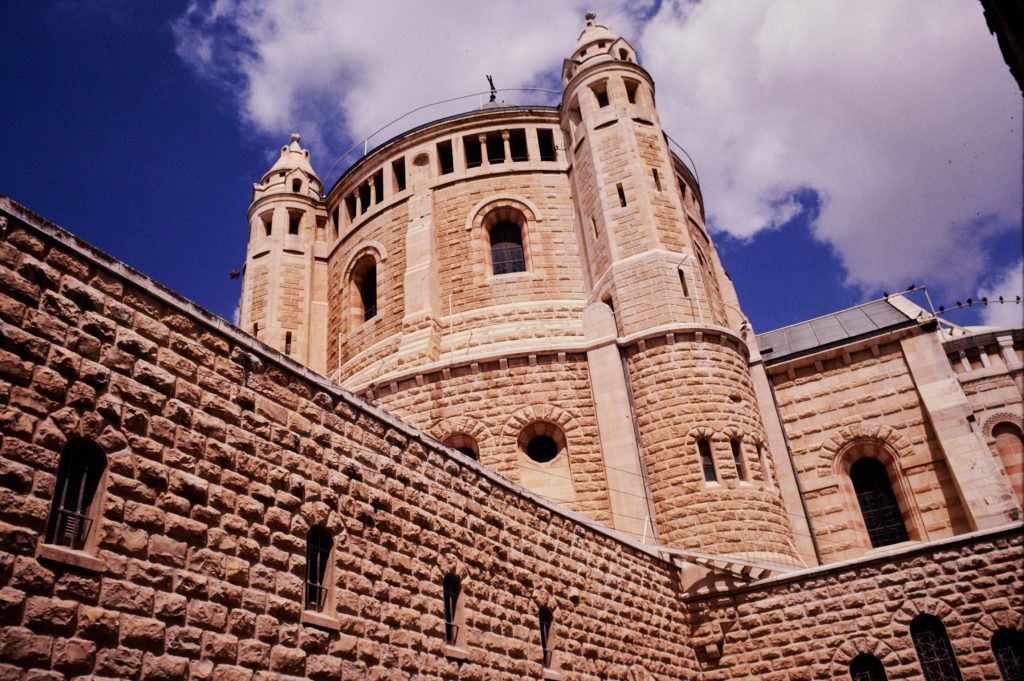

True, a great church was founded in Jesus’ name that has existed for 2000 years. Yes, but that early church was persecuted. Adherents suffered equally brutal deaths as their leader did. It was a movement of small fringe groups of the poorest of people living in the most down-trodden regions of the empire who carried on with the work of Jesus: outspokenness for the most oppressed against injustice of the ruling authorities. Some argue the religion of Jesus ended in the 4th century when the Faith was welcomed into the Holy Roman Empire. From that moment the church grew to become a great force of power, of wealth and land and grand building. It was no longer the church of the despised, of the widow’s mite, of the sharing of possessions equally among members. No, the original story in deference to the lowly and despised members of society gets rewritten emphasizing the regnant Christ in glory that in turn leads to the building of great monuments of power and influence, the elaborate robing of pontificates, of the clenched fist of papal armies, and institutional amassing of land and wealth beyond compare. The first bishops in Constantine’s church were given exemption from taxes and were able to amass great personal wealth due to their status in the empire. That attracted a certain kind of actor to the position of bishop who desired the worldly gain, could navigate politically in his own interests, and did what was needed to secure his base of power. That began a successful political movement for an episcopal-based church authority. Any faith groups who did not agree to the episcopacy as the final authority for faith were railroaded out of existence and made heretical by the new Episocopate and empire order. The church had arrived, strategically become a dominant and successful and princely world power.
I guess this line of observation comes down to one suggestion which is that to assume great power, avoid execution and crucifixion, an institution has no choice but go down a road for which success demands along with its profession of virtue, the strategic employment of forceful, despicable, abusive tactics and practices. Certainly the history of religion, including the Christian church, is marked by much inhumane, shall we say, demonic, willful carnage of human life.
This scathing criticism of my own social-cultural inheritance, the Anglican and Christian church, comes not as an attack, though it would feel that way to you reader since it is so hard admit to the bad parts of our own history. It’s hard to admit to the exploitation necessary for being a winner in this dog eat dog world. To weigh the cost to others of our civilization’s victory undermines our moral identity and belief in our own goodness. Of course the winning civilization will gloss over its ruthlessness in the triumphal celebration of its victory. That greatness is what we want to hear for ourselves. Instead, I hope you allow me to raise this uncomfortable history for our reflection in order to help set the stage of this discussion: none of us is righteous who benefit from our champion culture secured by aggressive, strategic enterprise; that is, none of us able to take the high ground of virtue; not claim how much better we are; hence, one might allow, what right have we to condemn others. The fact is our ‘goodness’ has been at the expense of the rights and liberties of someone else.
The politics of Israel in 1982-83: well, it was complicated.
One complication was the economic survival of a small population that required an expensive military while running a country of little resources. The kibbutz in particular provided produce and some manufacturing, but it wasn’t a lot. Not enough to finance a nation. Israel had support from outside sources such as reparations from Germany. It received payment from the USA to be a line in the sand with Russian influenced Arab states. It facilitated illegal arms and weapons deals. But who knows what else Israel did to survive the early days. They had to survive. It’s complicated.
Another complication is the border. The West Bank cuts into the middle of current Israel influence. If the West Bank were returned, the state of Israel at its centre would be only 5 miles wide from the border to the sea, probably impossible to defend. In the map the yellow highlight indicates roughly the West Bank. (The red is the Sinai given back to Egypt.)
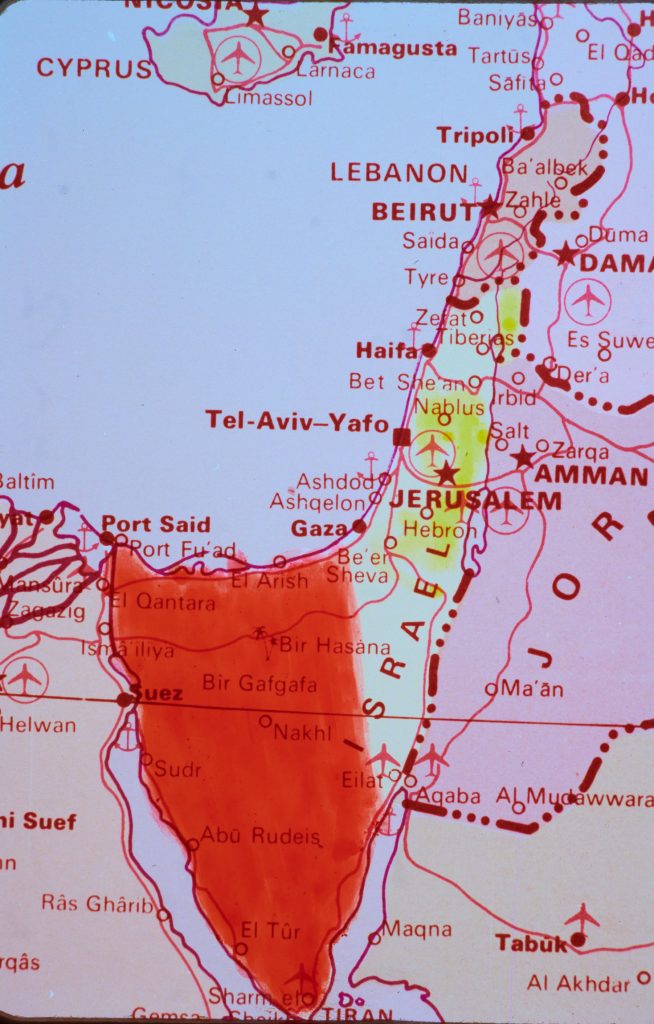

One of the tensions in 82-83 was between the life of the West and the East. One of the justifications for Zionism that I heard on the kibbutz was that the land they now farm was only swamp when held by the Arabs. The kibbutzniks show how with supreme sacrifice of hard work and facing disease and death everyday, they drained the swamps and turned them into incredibly rich agricultural land that feeds the nation. The counter argument is to say this is no argument. The Arabs say that land is land. If their land was swamp, it was swamp. Making it farmland does not justify overrunning Arab land.
It was curious that even among the Israelis there was this West and East divide over progress as a defining justification for action. The Sephardic Jews seemed in many ways more in sympathy with the Arabs, Arab cousins really, than with the Ashkenazi Jews; the one ethnic group leans toward a traditional life and the other embraces Western development. In the photos below, you can see the two worlds, west and east.
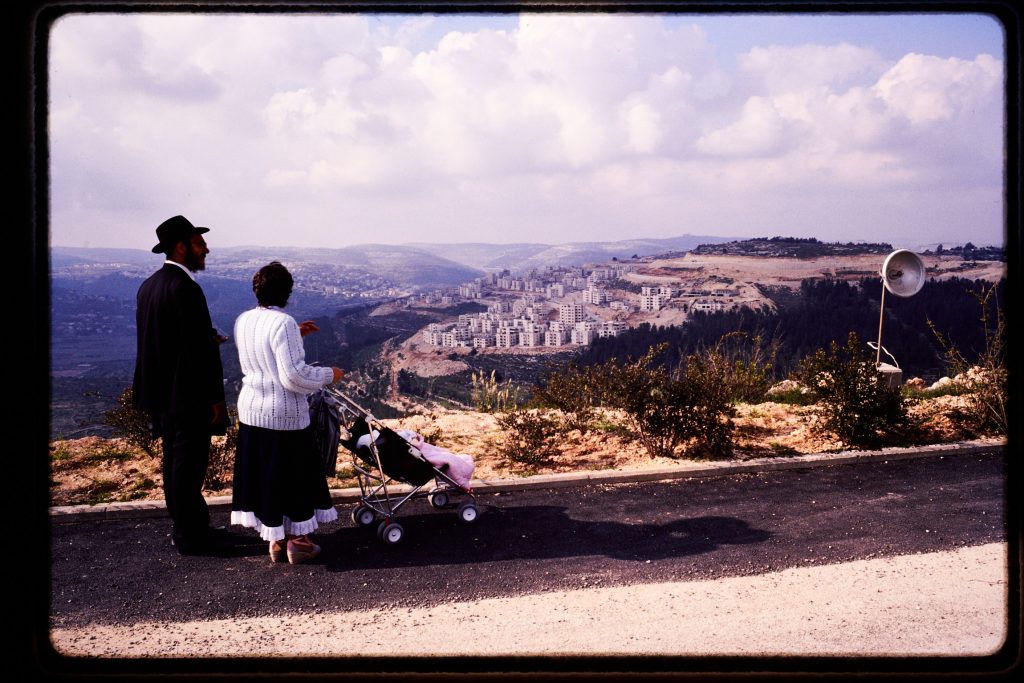

Another complication was the development of the West Bank settlements. It was politically strategic to build on occupied land in order to lay title to the land. It was also strategic for security. The land had always been lost in battle through the weak, desert-like south, so settling the south with people was an important line of defence for the nation. But at the same time, settlements were a chance for ordinary people to have a home they couldn’t have afforded elsewhere in the country. In the photo to the left of the young family looking out over the distant village, I can just feel their longing for a place they can afford, to call their own, to raise their family. Low-cost housing in the West Bank was the realization of this hope for many.
While Israel’s orthodox religions use biblical accounts to claim a right to the land, the Holocaust is another strong justification I heard. Christians and European society cannot be trusted. It was hard for the Jews in Germany to grasp what was developing in the 30s because they didn’t see themselves as anything but Germans who happened to be Jews. No longer can they trust citizenship under another domain than their own. My theatre teacher and one of my few caregivers in my life, lost all her adult family in the holocaust. When she is vehement about protecting her home country, born in Israel and gone there to die, I have no words to counter this. I can but fall on my knees, put my head to the ground, and cry. I listened to the politics as presented on the Arab media as part of one on my courses at Haifa. There was no conciliation in anything that was said, nothing but threats against Israel. This was not Israeli propaganda. There was no need for propaganda; the messages were clear; Israel is the enemy and Israel must be destroyed. That’s what was broadcasted to the Arab peoples. A different broadcast was delivered for the West.
The overriding word for the interest of Israel is Security. For the Palestinians, it is Freedom. Palestinians have no defence. Their homes and orchards and livelihoods and dignity have been railroaded in the interest of the States around them. I saw a documentary last year showing the current Israeli settlement on the West Bank. It made me ill. What I had known as beautiful lands are now concrete overpasses and buildings, of the ugliest order. In 1983 I saw a lot of Palestinian art expressing the desire for freedom, doves escaping through iron bars, rainbows rising from ashes.
As the poem quoted in the Golden Gate blog points out, “Yonder a maid and her wight come whispering by/ War’s annals will cloud into night ere their story die’. Machinations of power conspire against everyone’s life. If it were up to people, they would just wish to live out an ordinary life raising a family and eating good food, a safe life of ordinary activities of an ordinary human being. Along with the Dome of the Rock, the Western Wall, the Via Dolorosa, the Church of the Holy Sepulchre and numerous other markers and symbols of power in the Old City, ordinary people carry on living ordinary lives within the Old City’s walls. Find happiness in ordinary ways.
The following photo is the one of all my photos that speaks to me most of the politics of the Middle East, that is, ordinary life made a mess of by the continuing interference of global empires and the incessant pursuit for wealth and power. Who is the most powerless but a child; who are most delightful and innocent and beautiful but children? Is the delight and playfulness in the eyes of these children below, the joy of innocence they project, is it not the most exquisite representation of our humanity, the very best aspiration of our humanity, of who we are? So we put them behind bars and teach them about guns.
These children are nearly 50 years old now. What has become of them? I hate to think. But the photograph captures forever the magnificence of their smiles that break through the imprisonment of their bodies behind bars, the curse of the violence of the gun. The playfulness and love of the little girl peaking out at me will forever give me hope, give me a reason to press on and press on in the face of human selfishness, brutality and violence. Those children could be children born into any of the religious traditions in the Middle East, any of the political factions, could belong to any one of the righteous ideologies, but who knows which one by looking at them -so the allegiance of their accident of birth matters not- in the moment of the photo, all they know and all I know is love they show to a stranger walking by.
